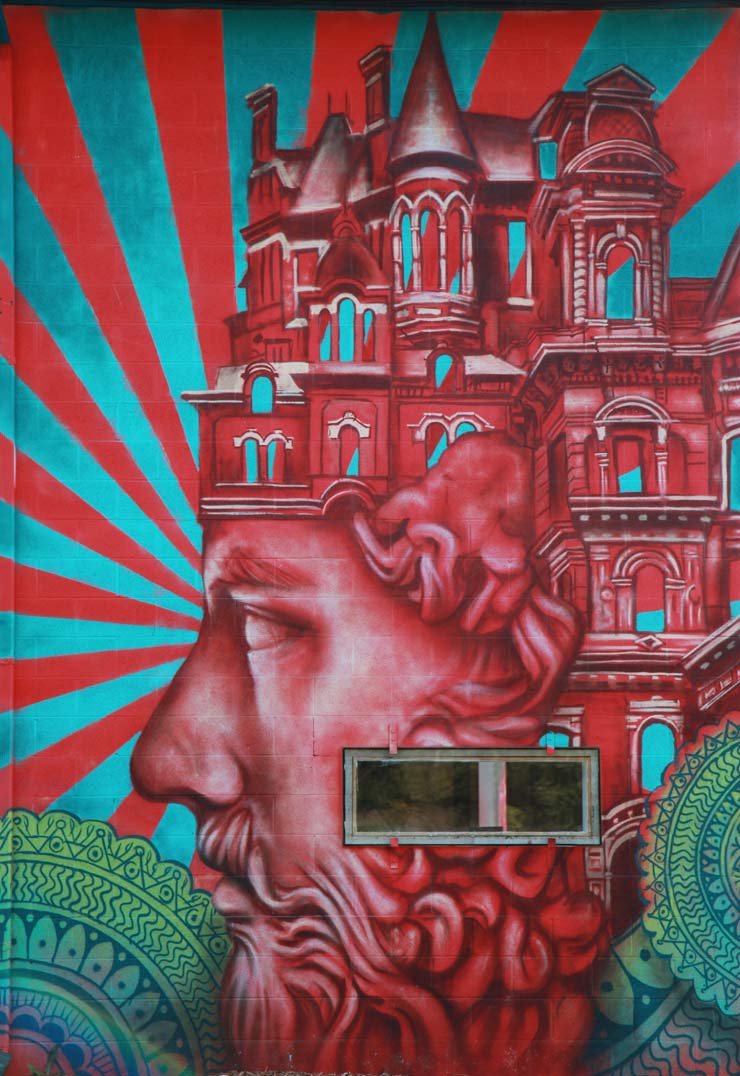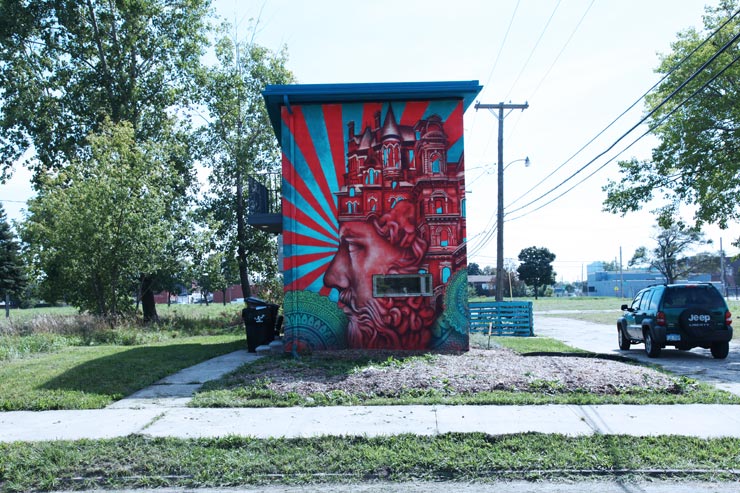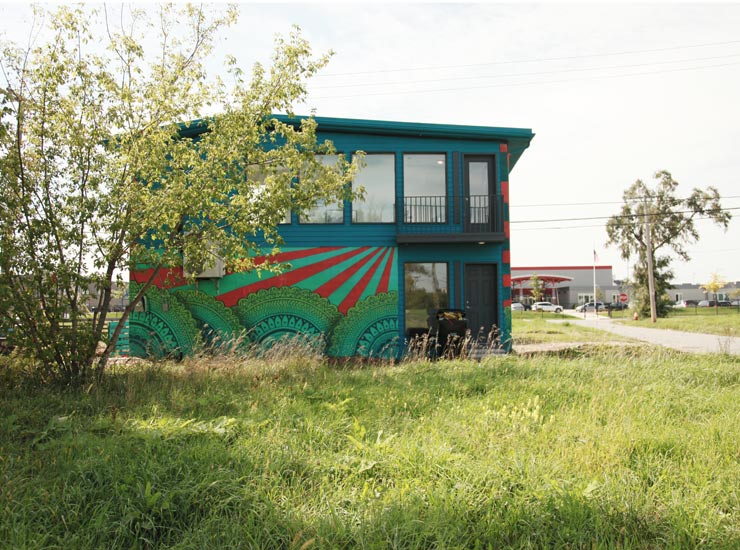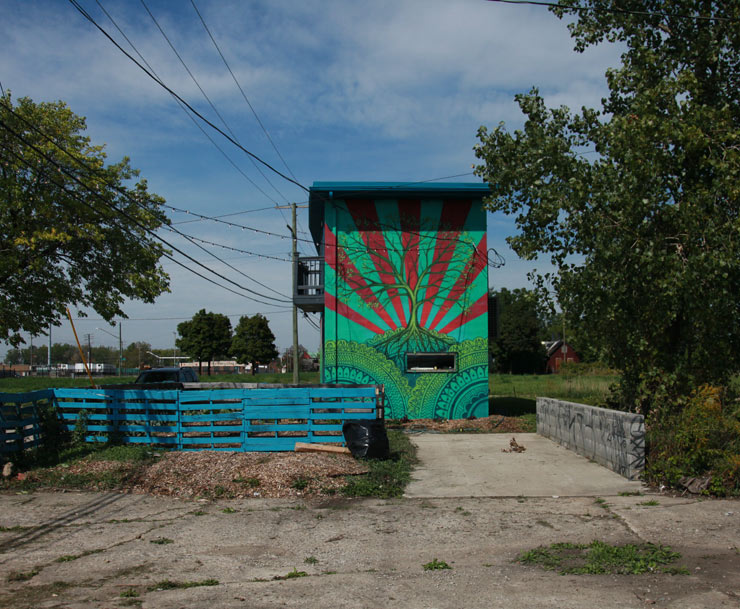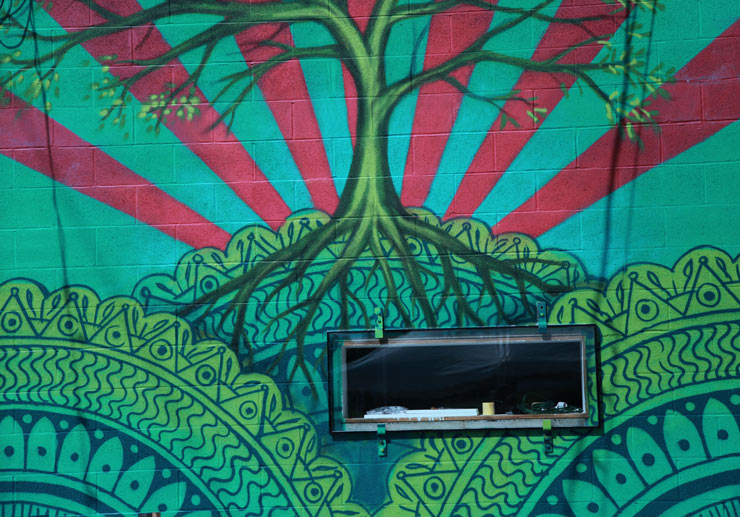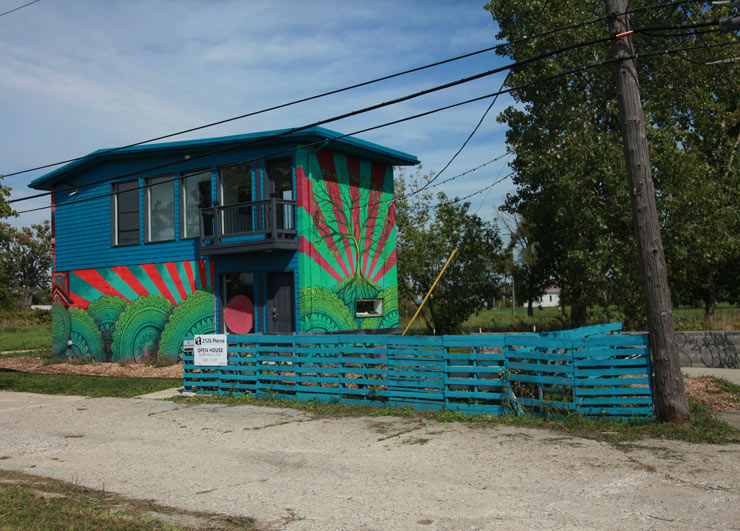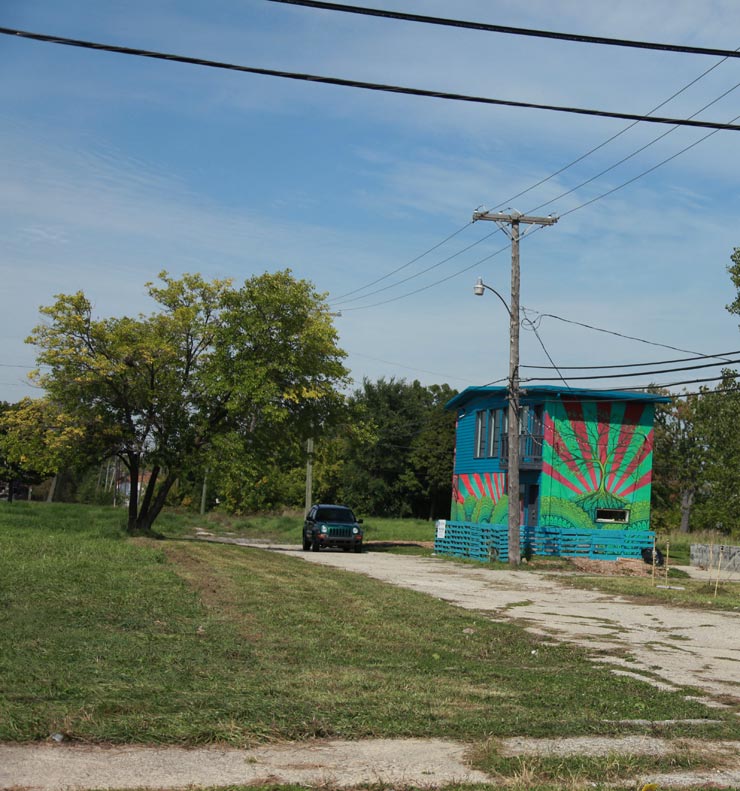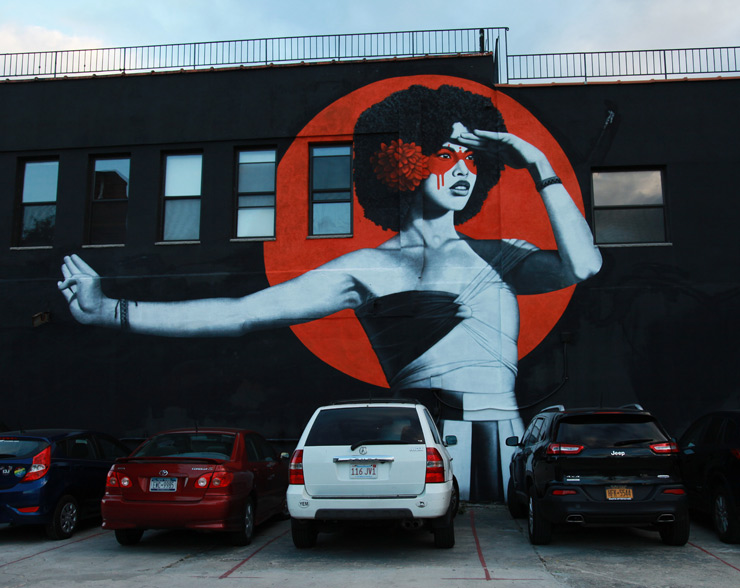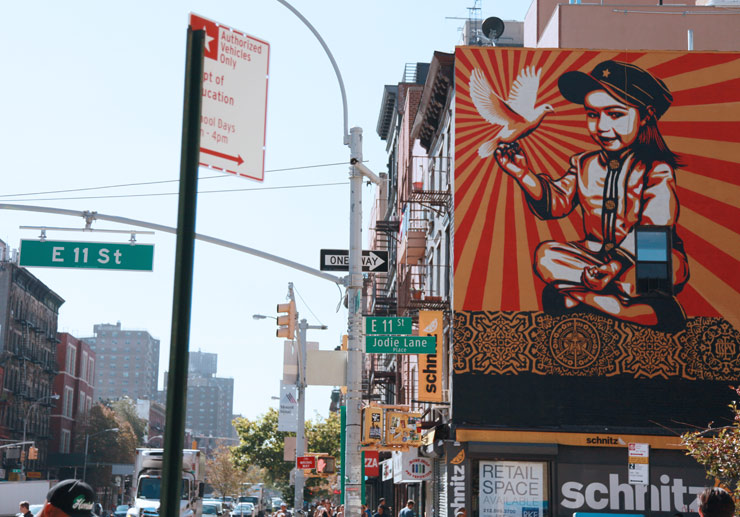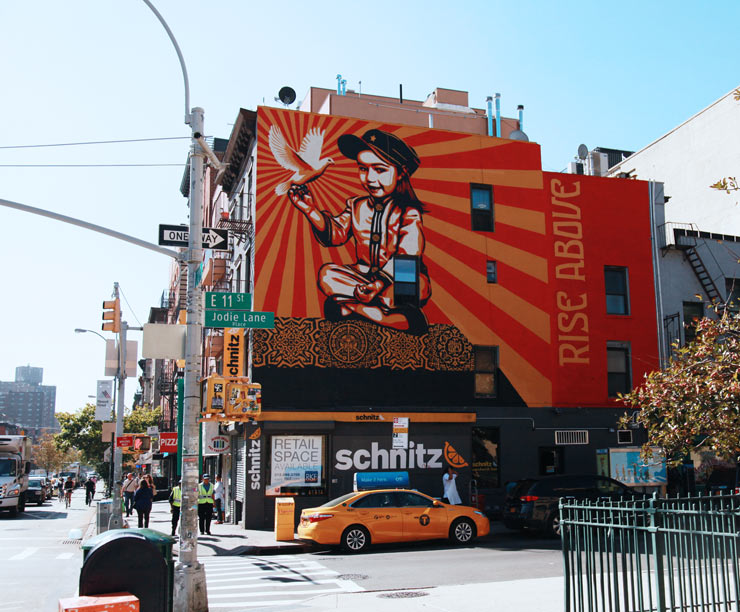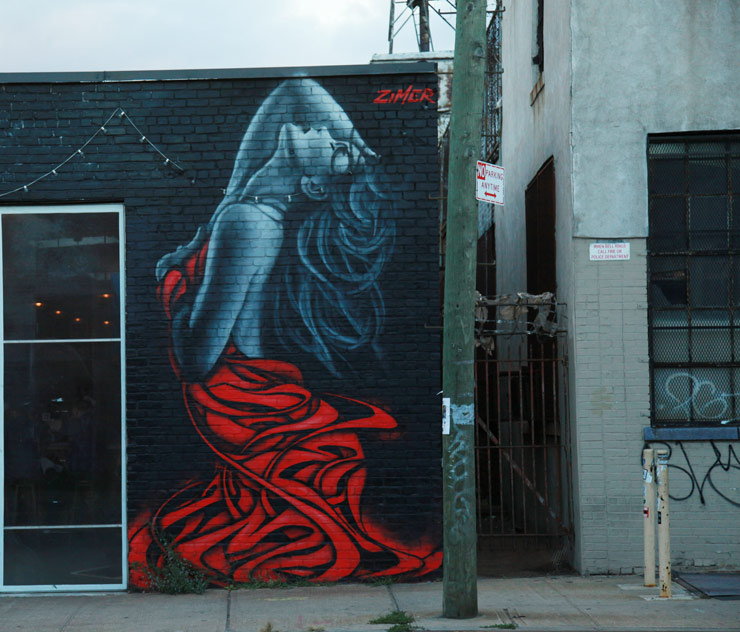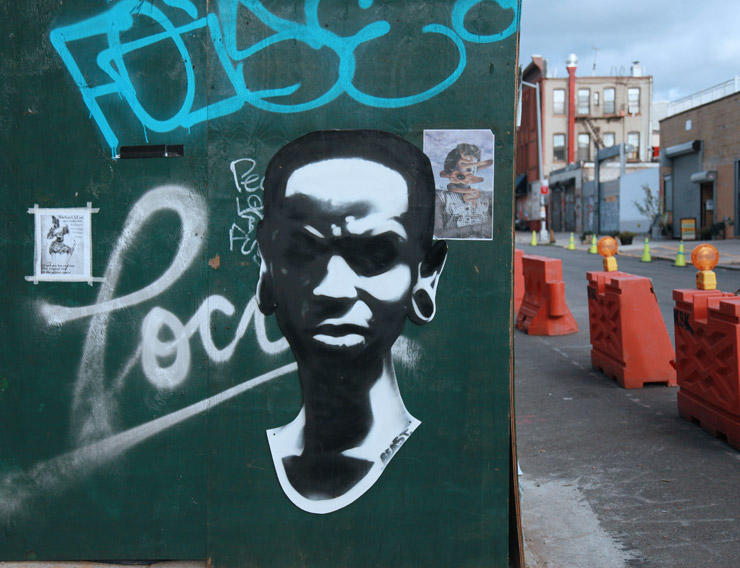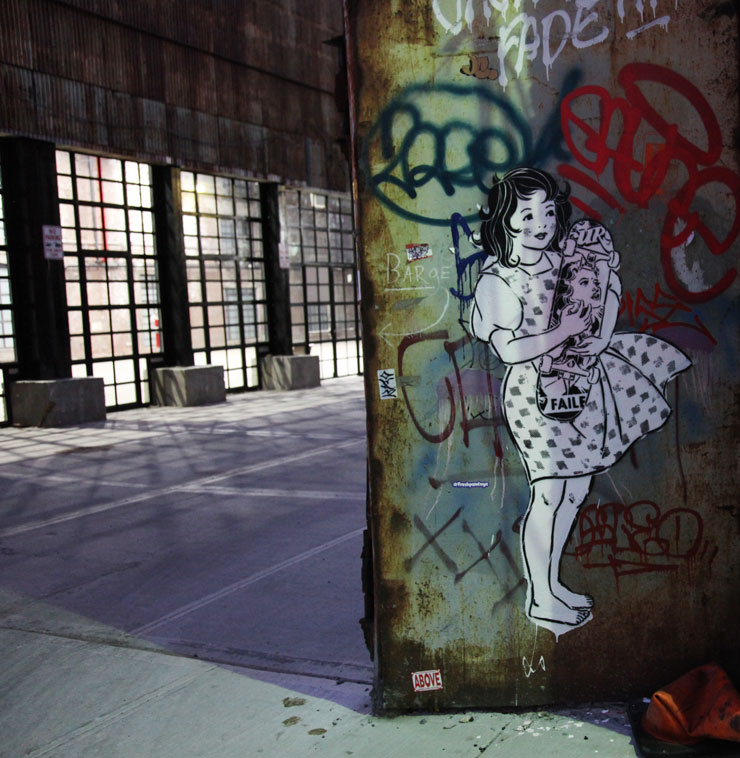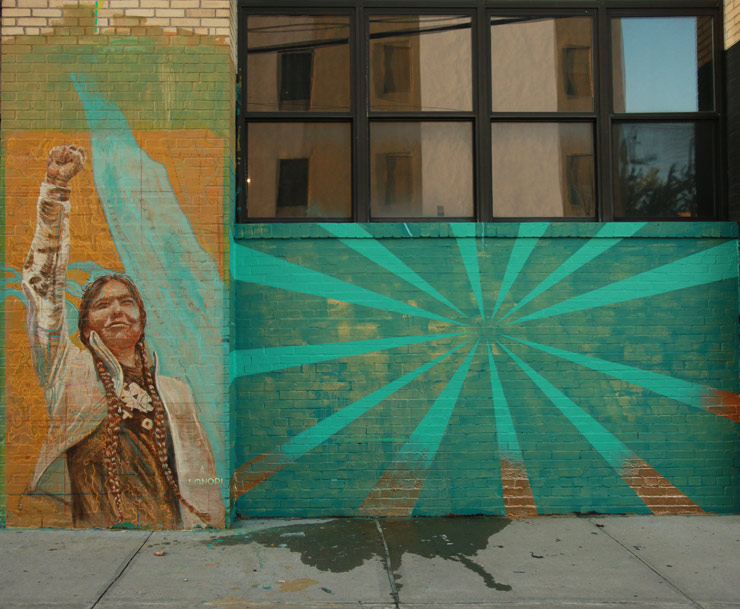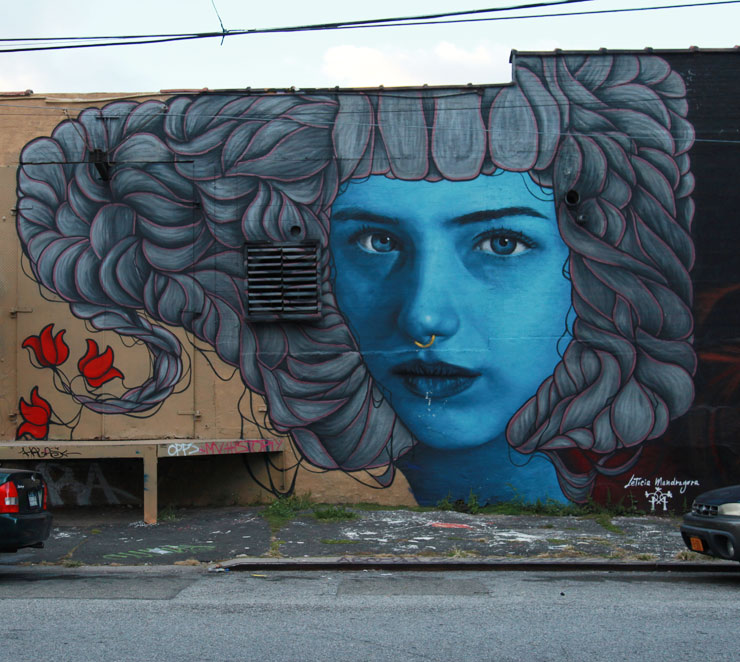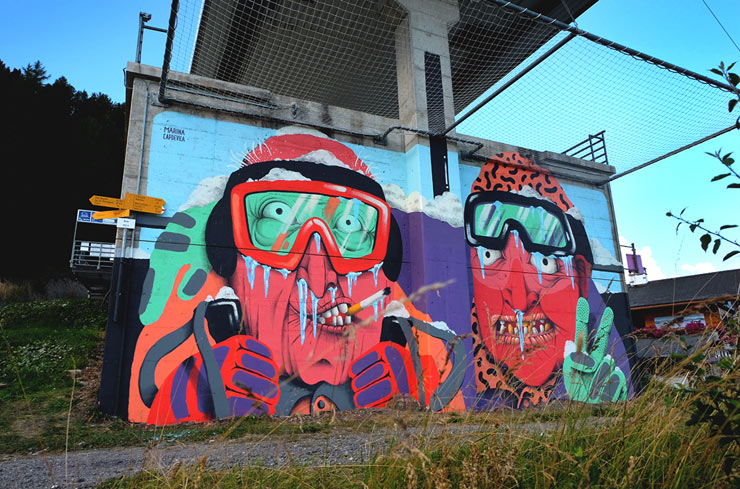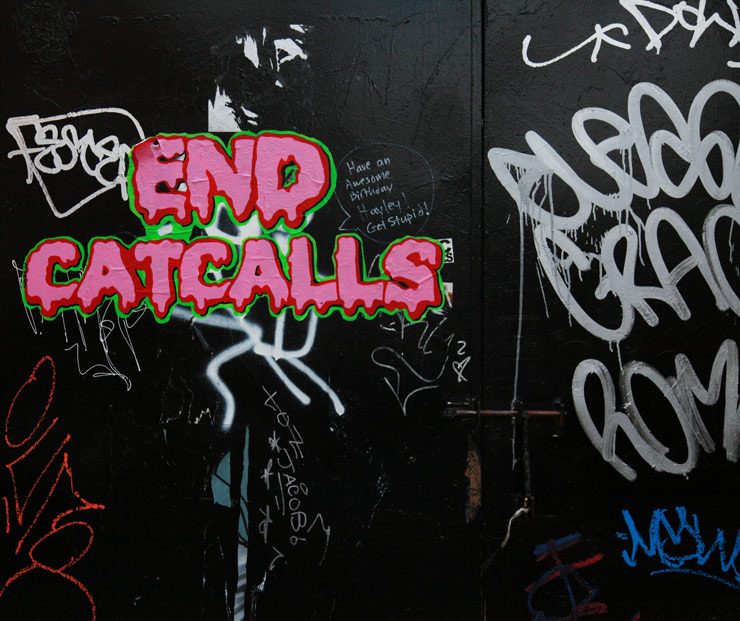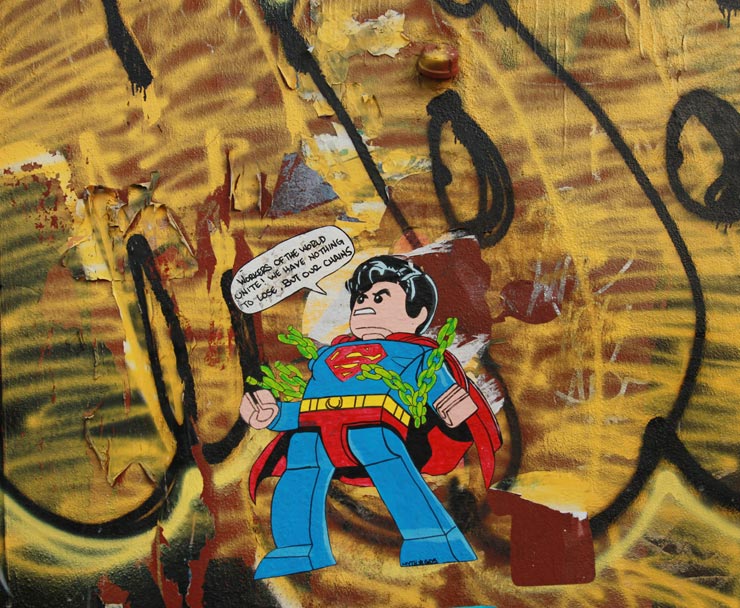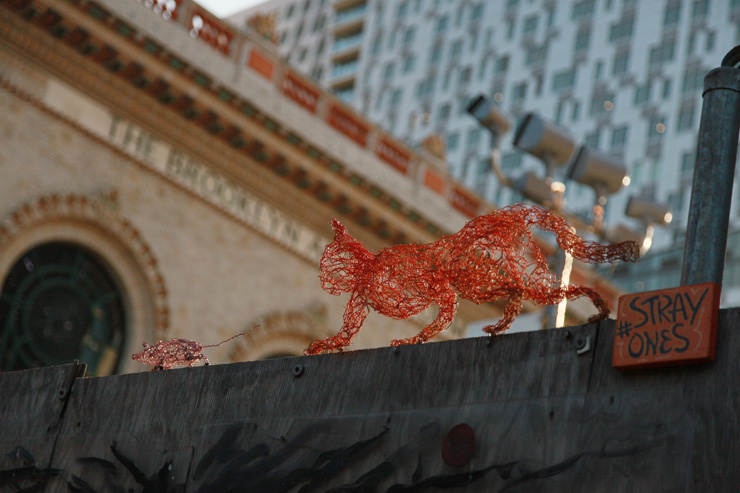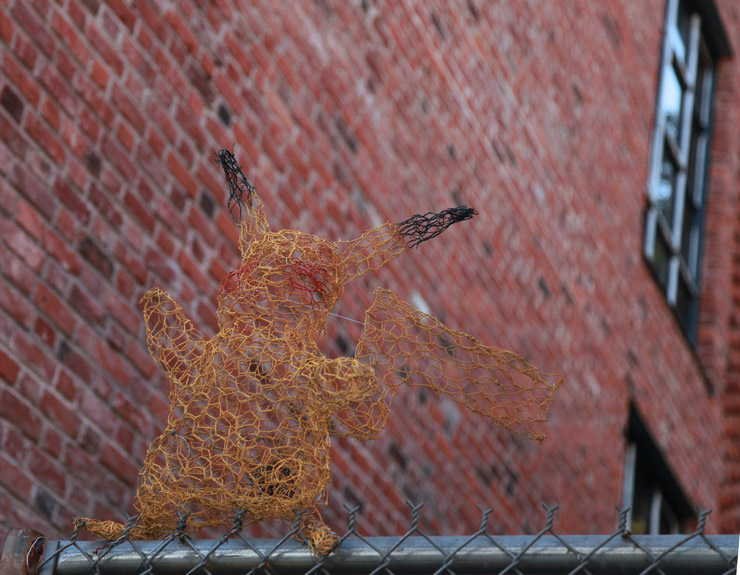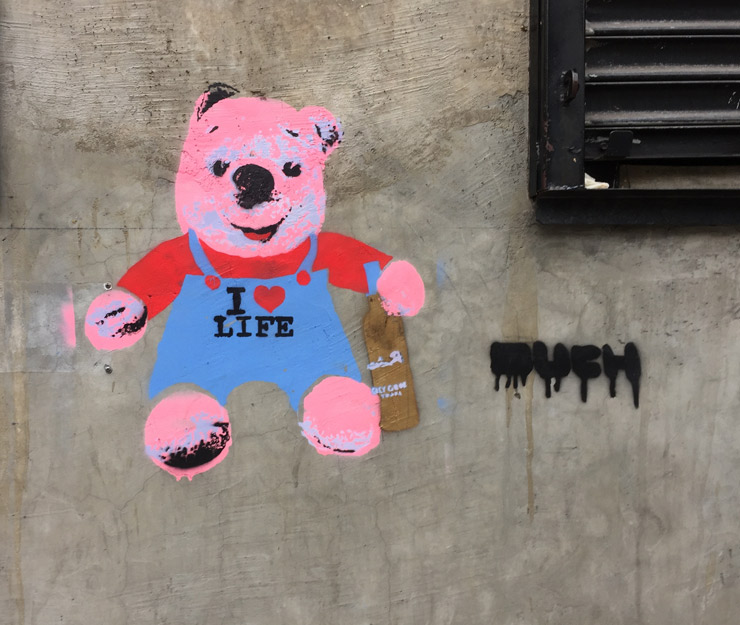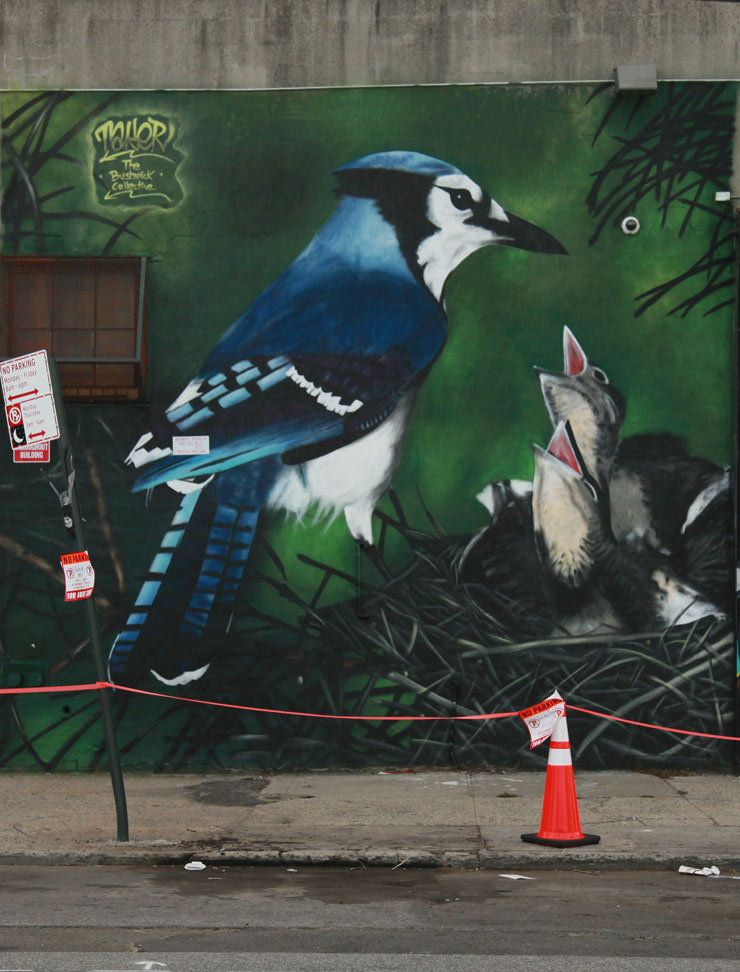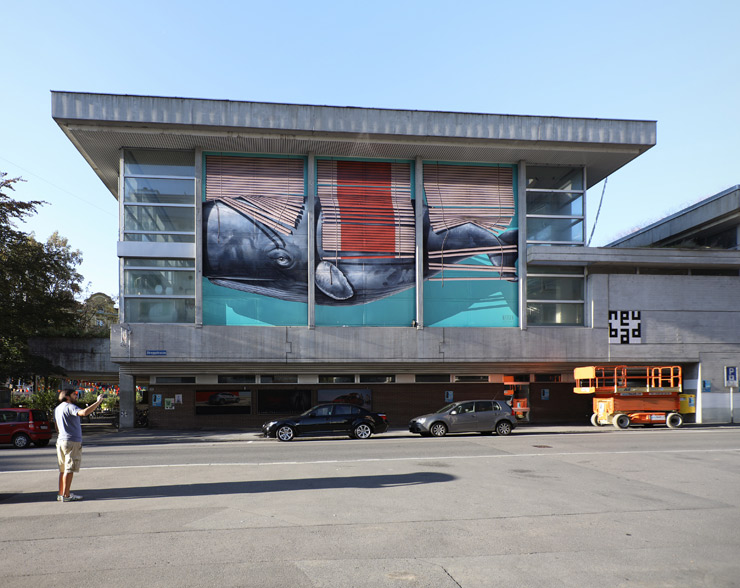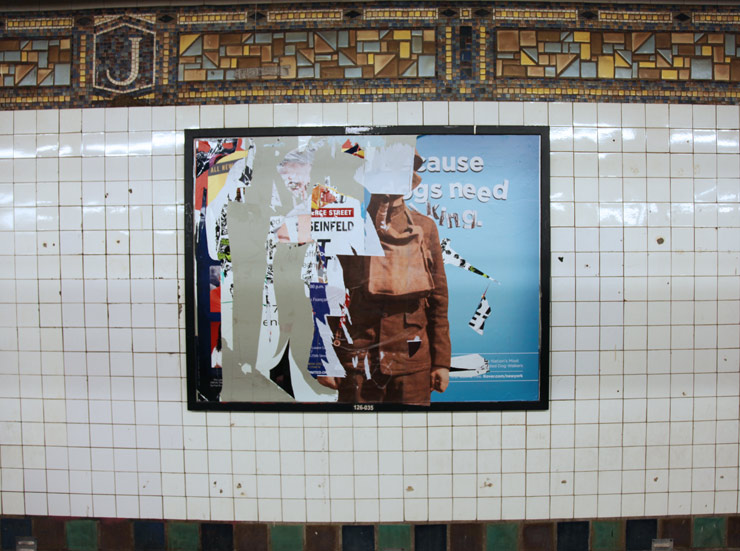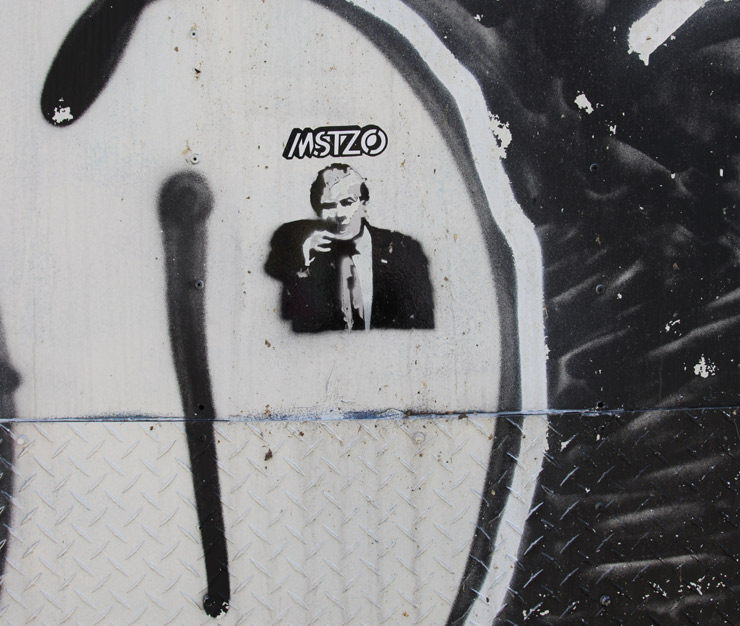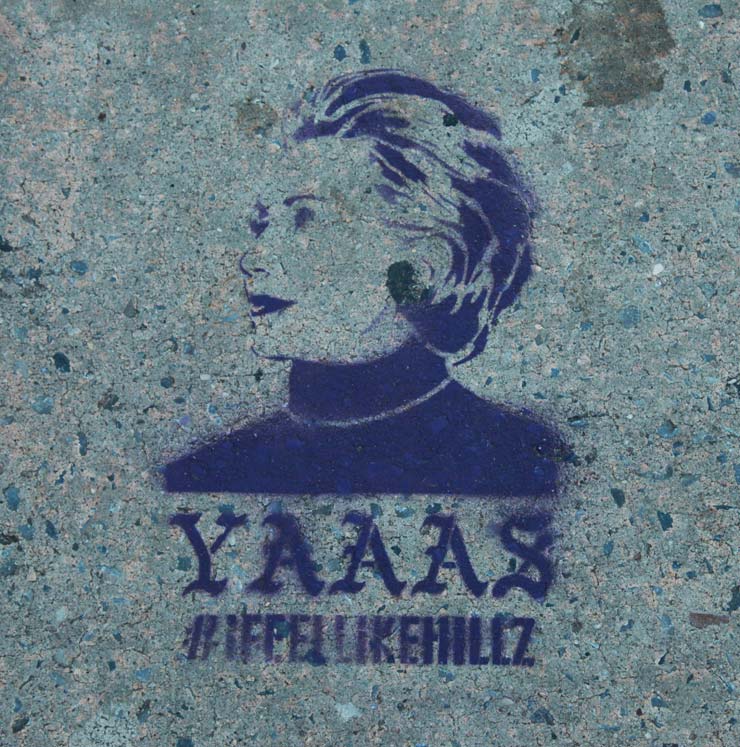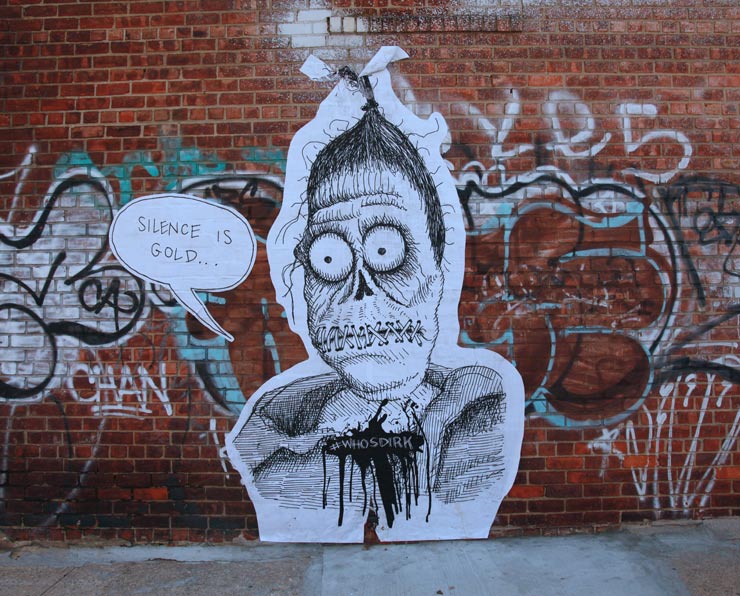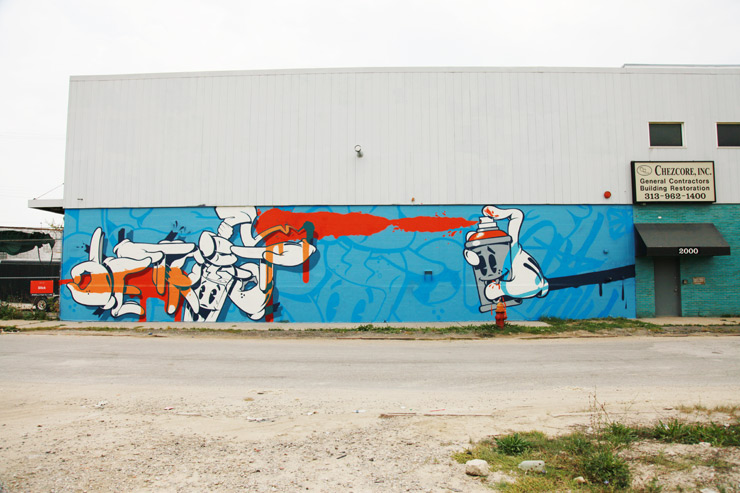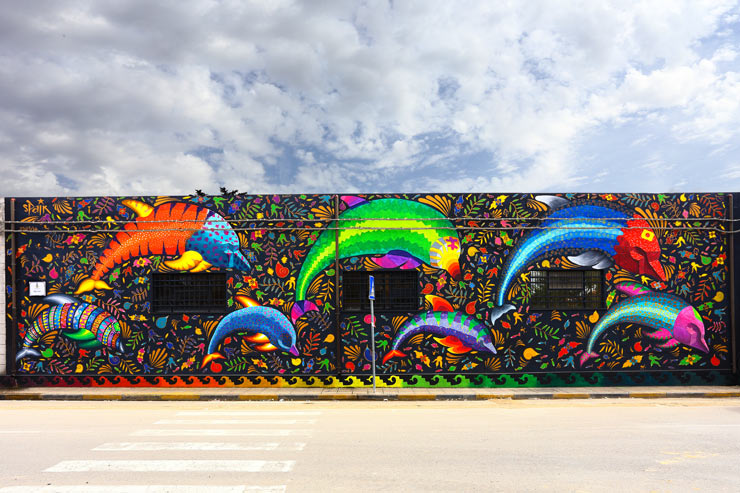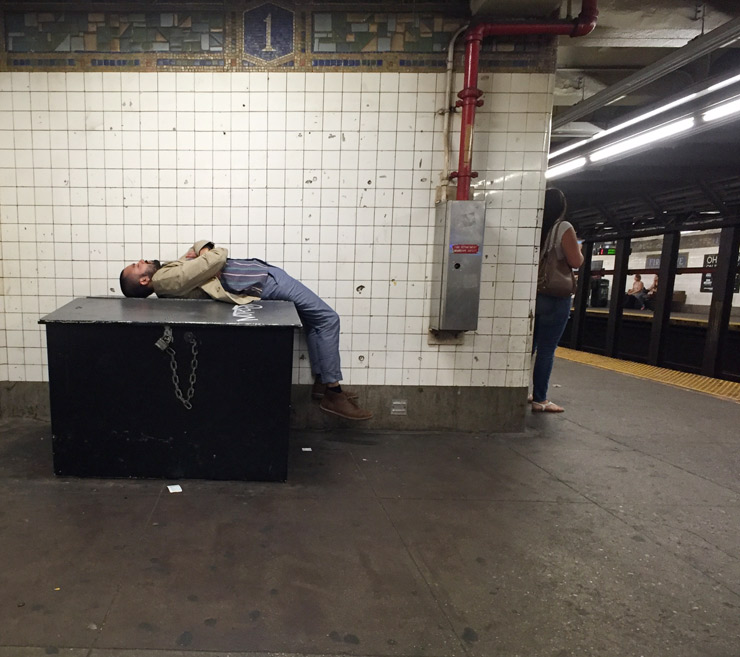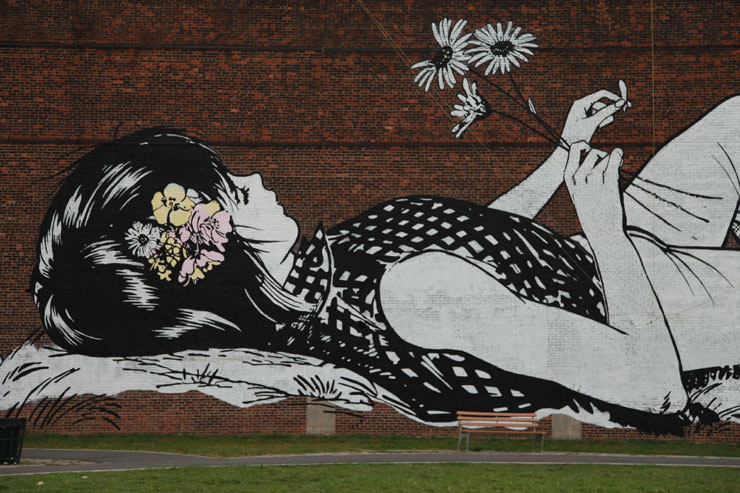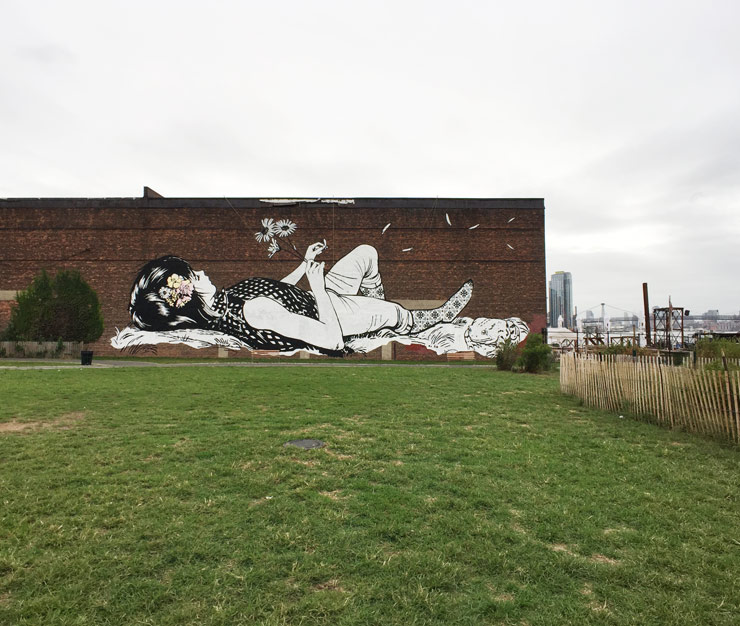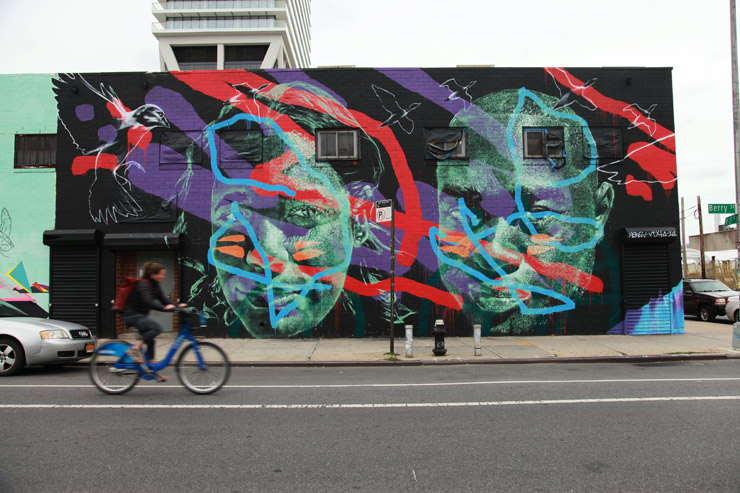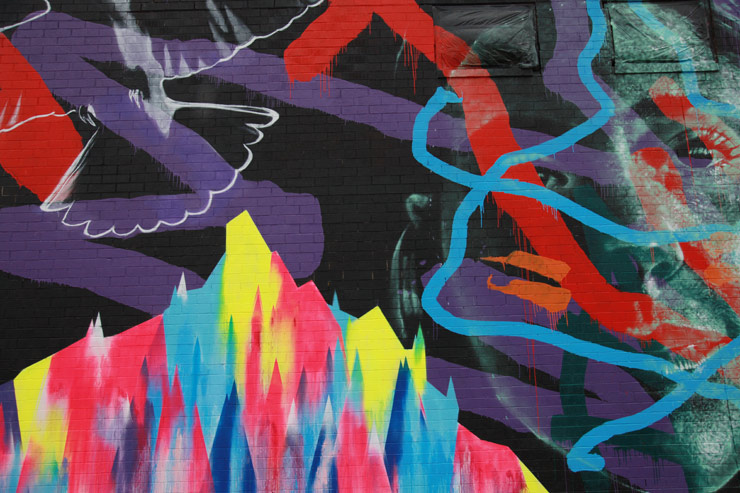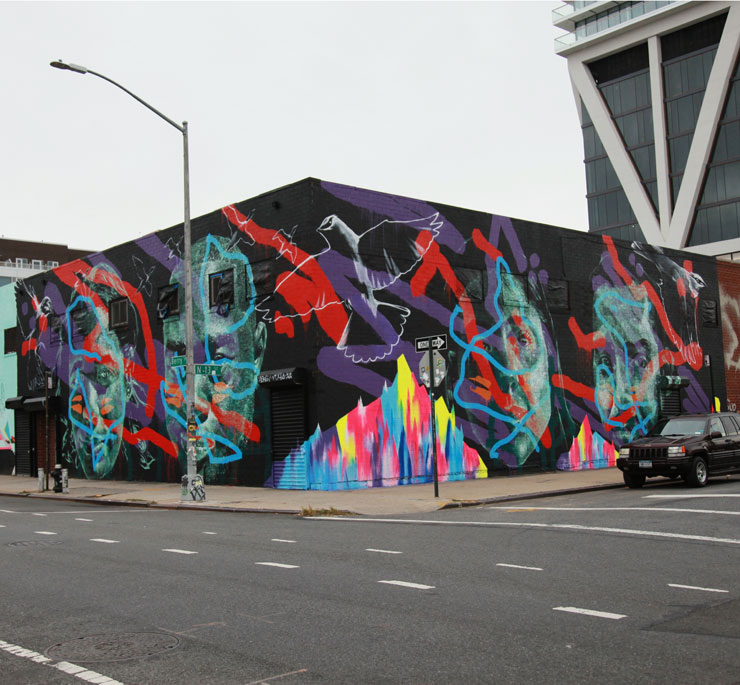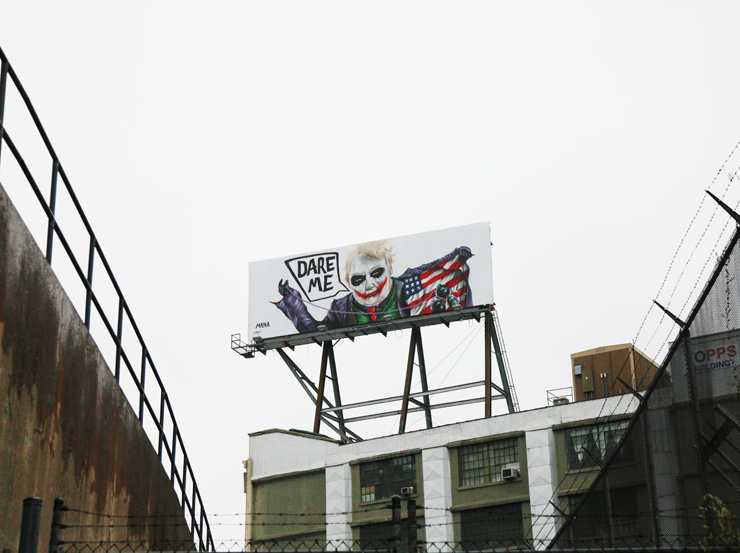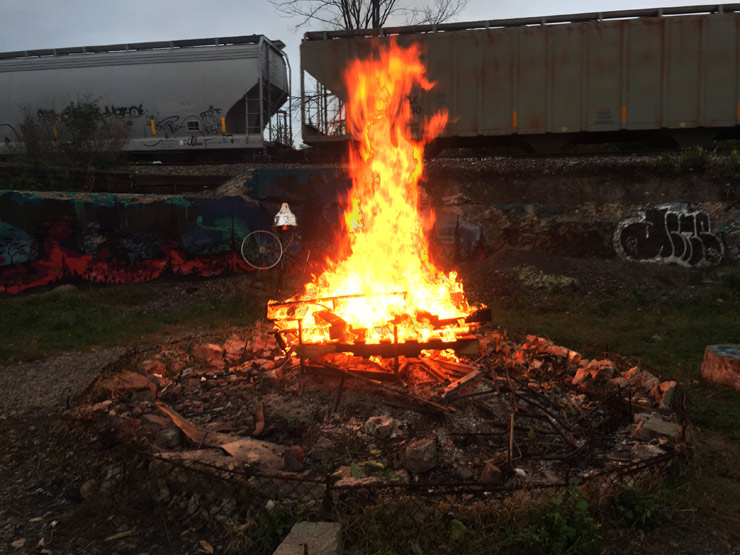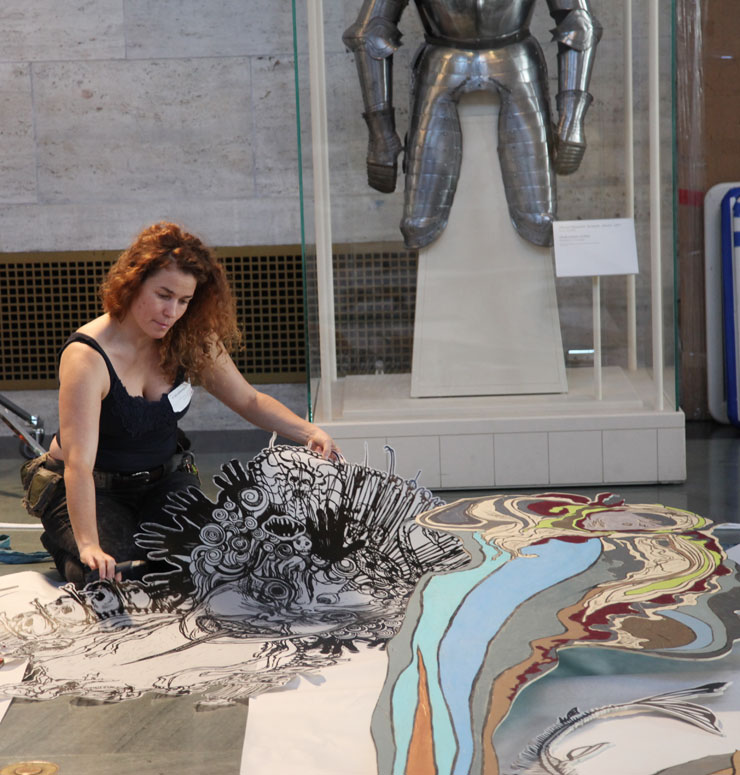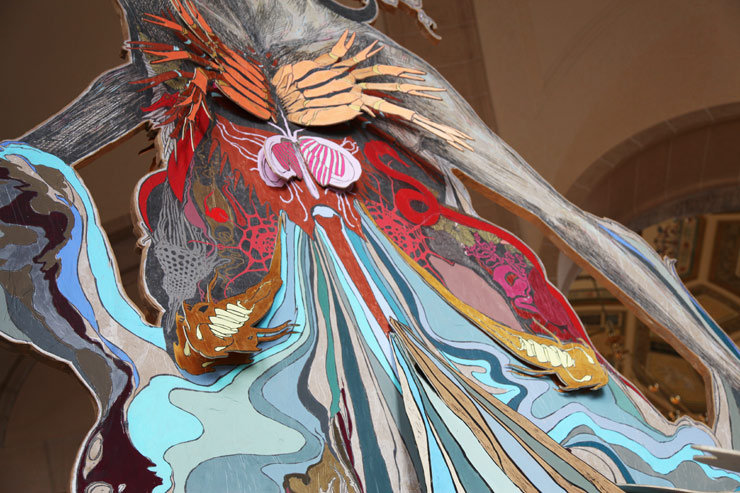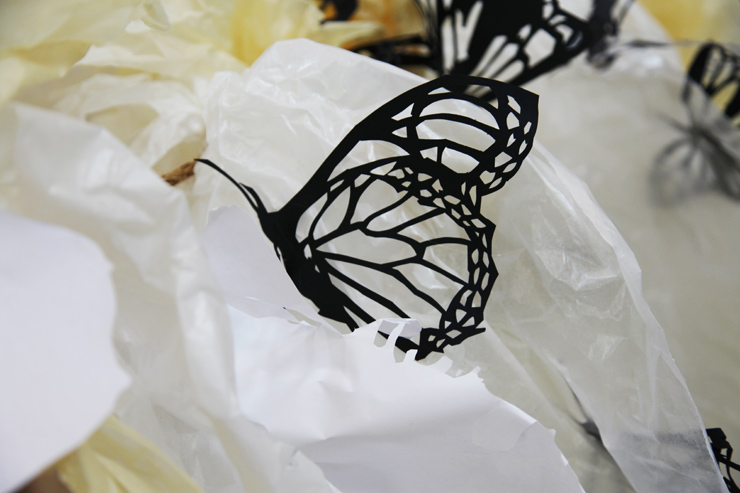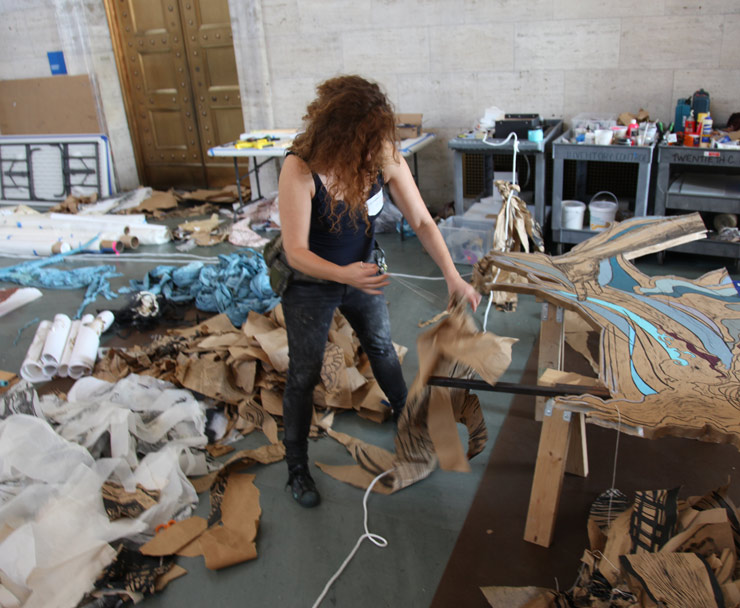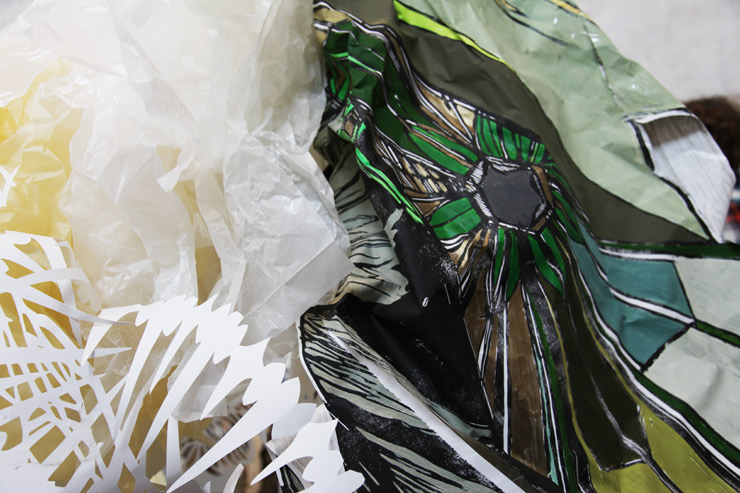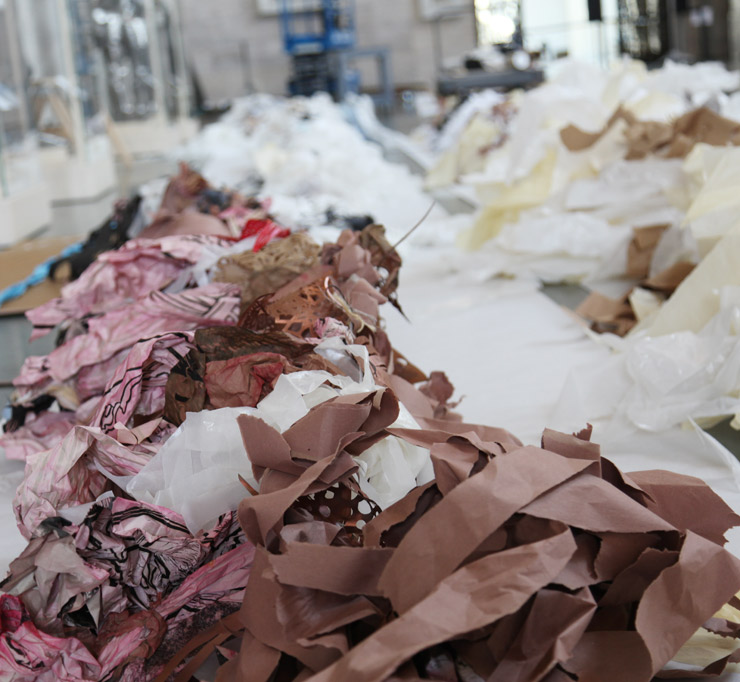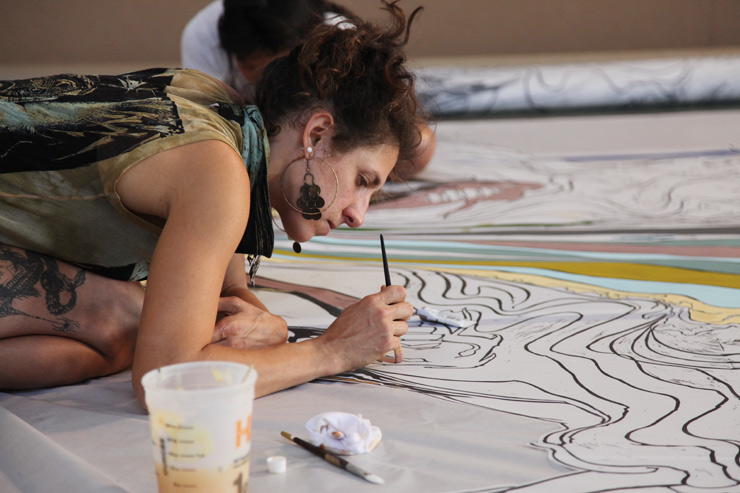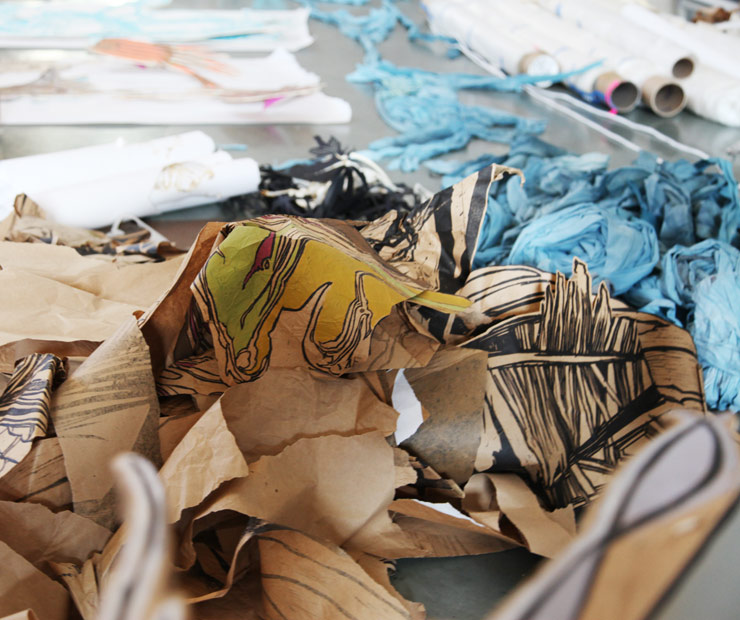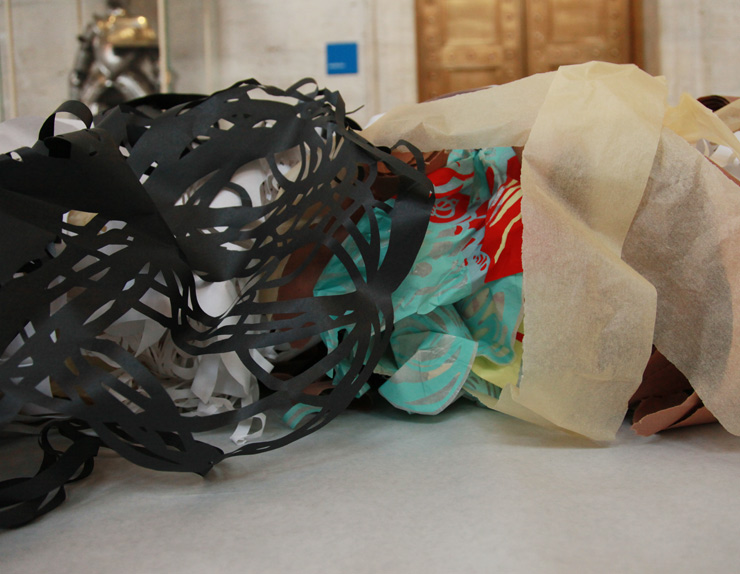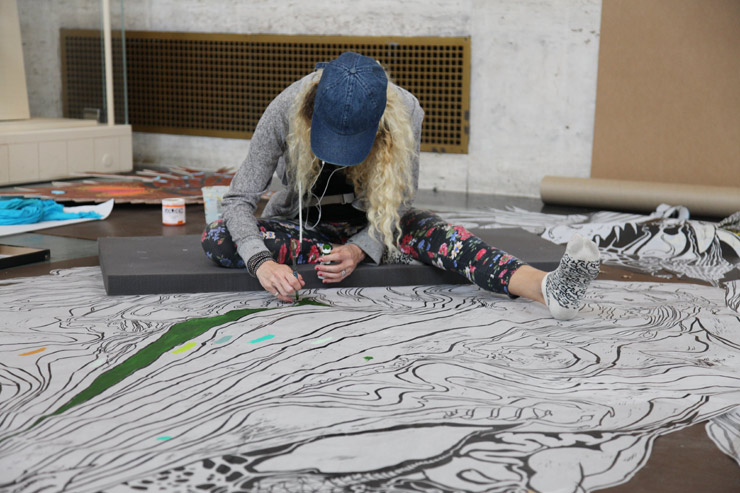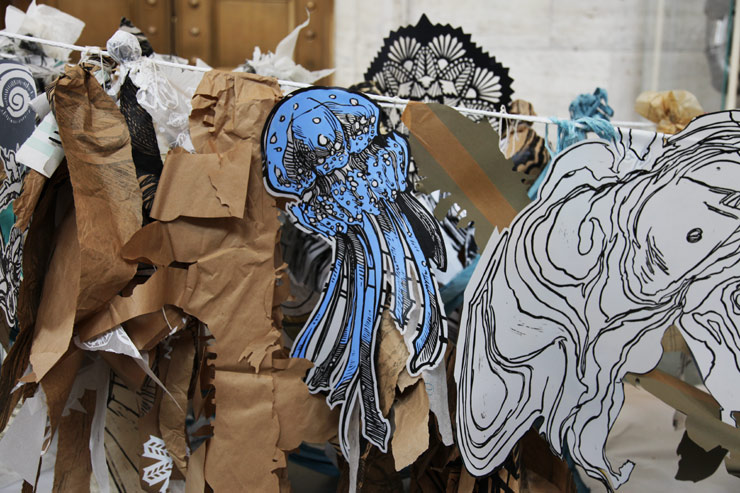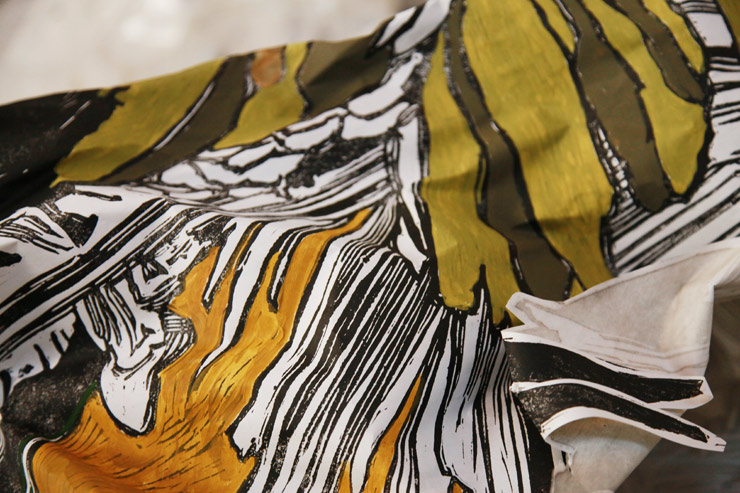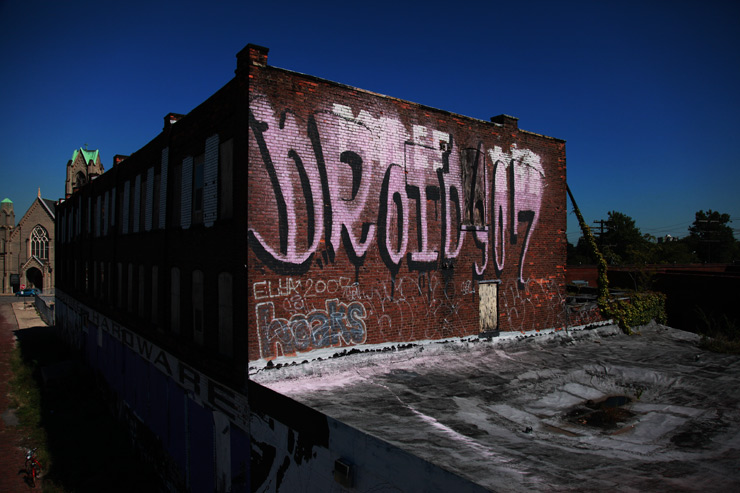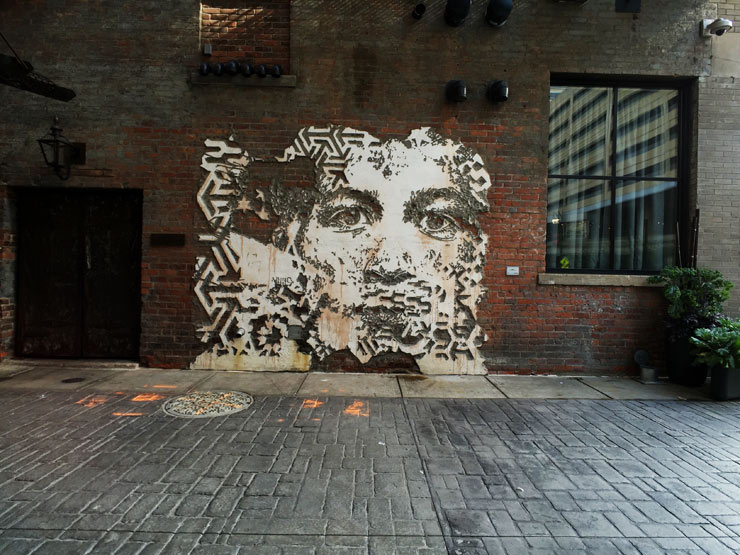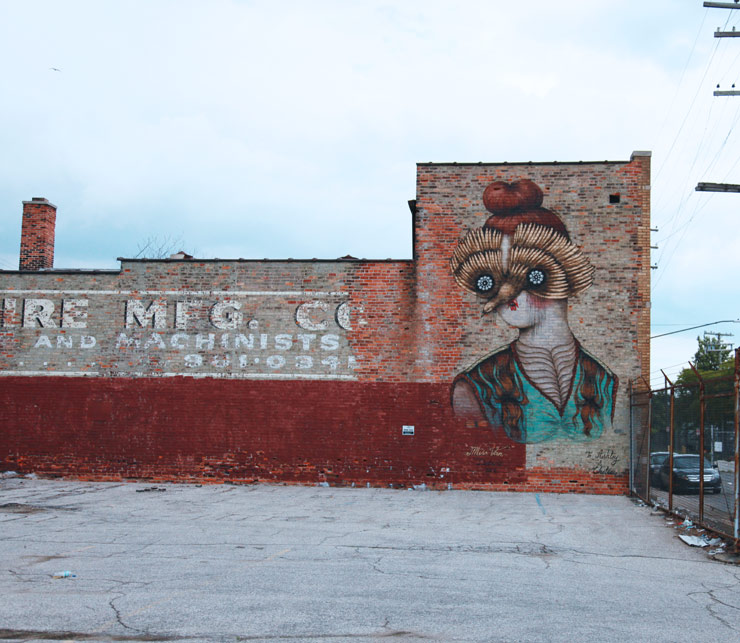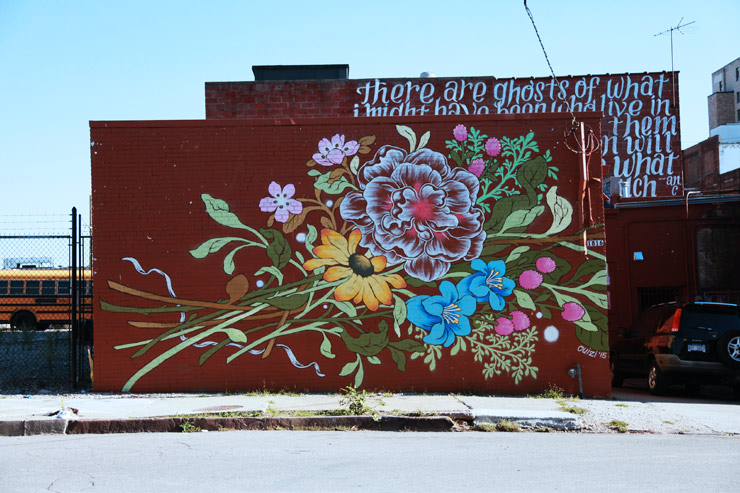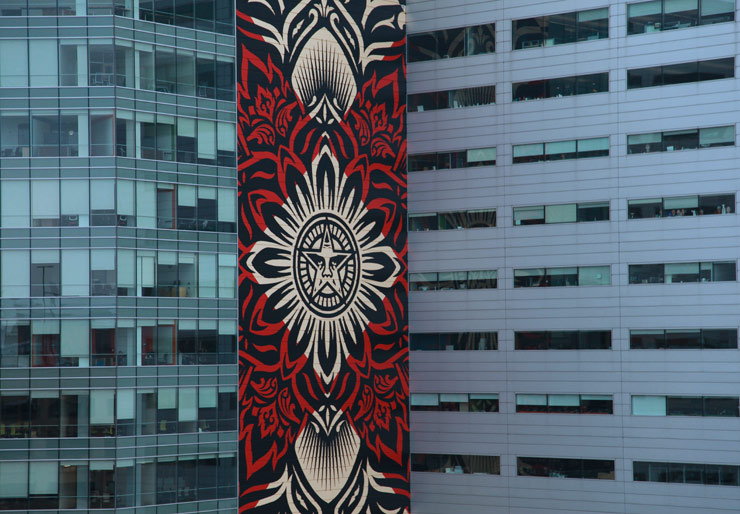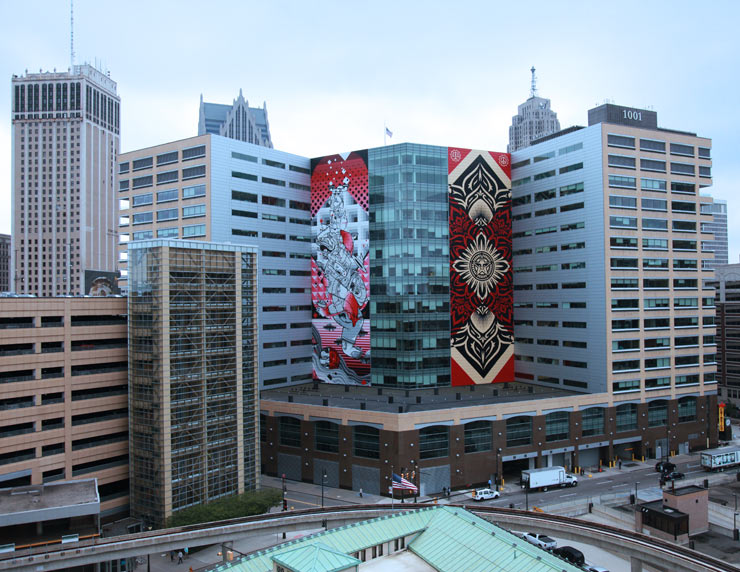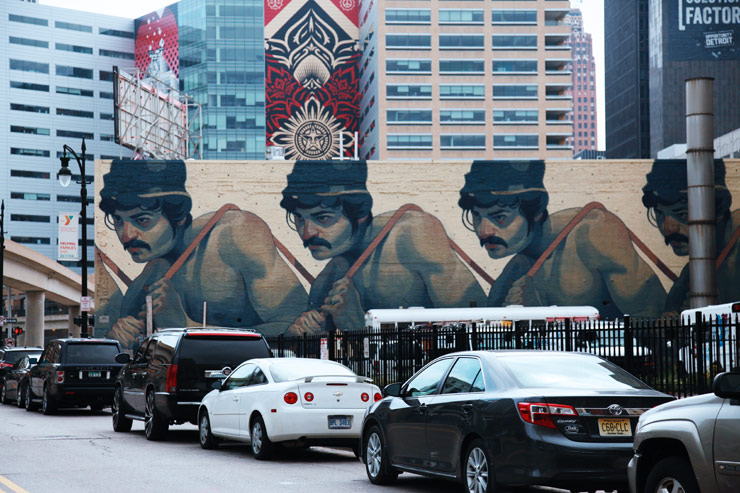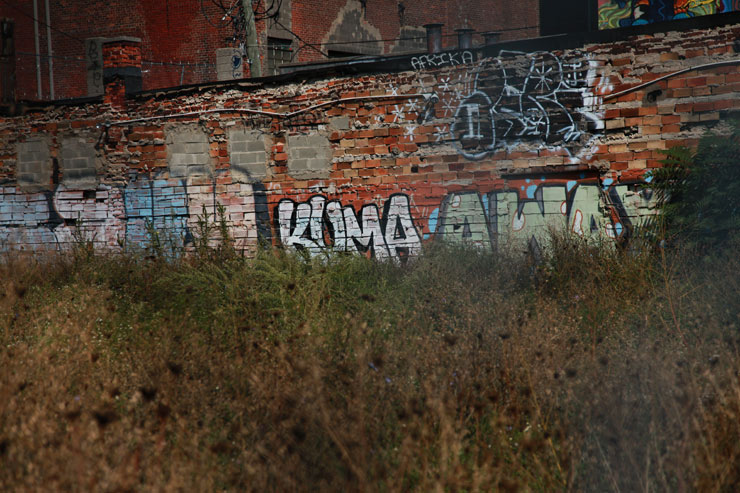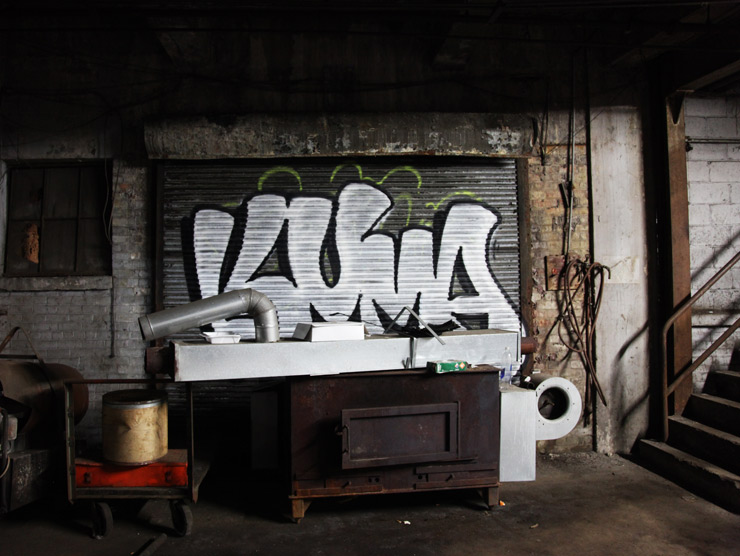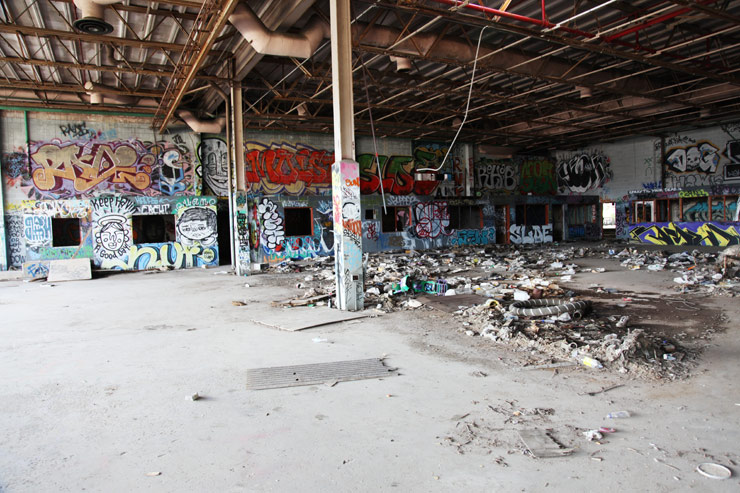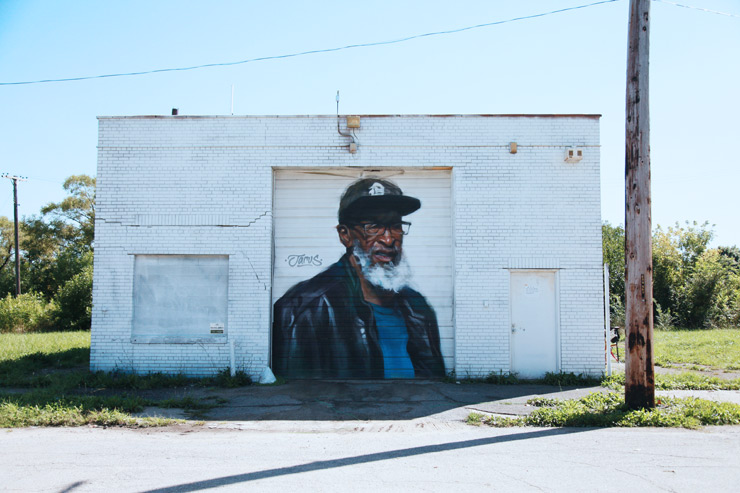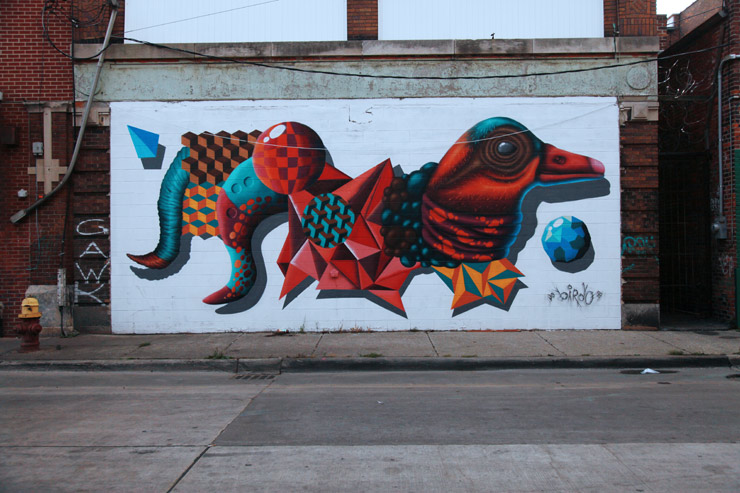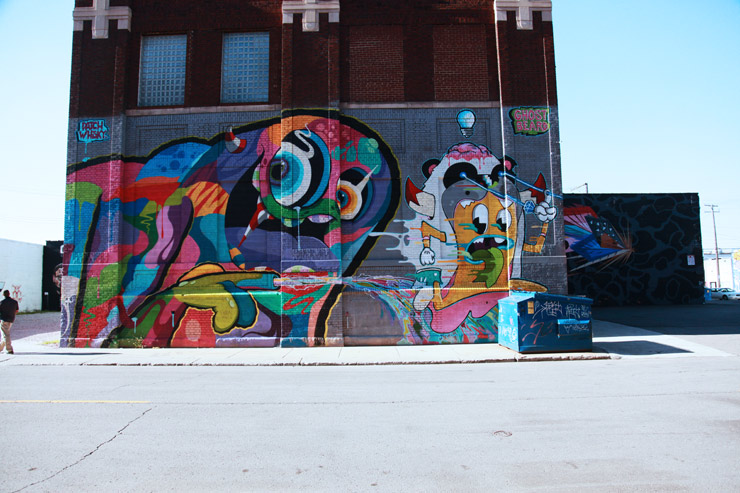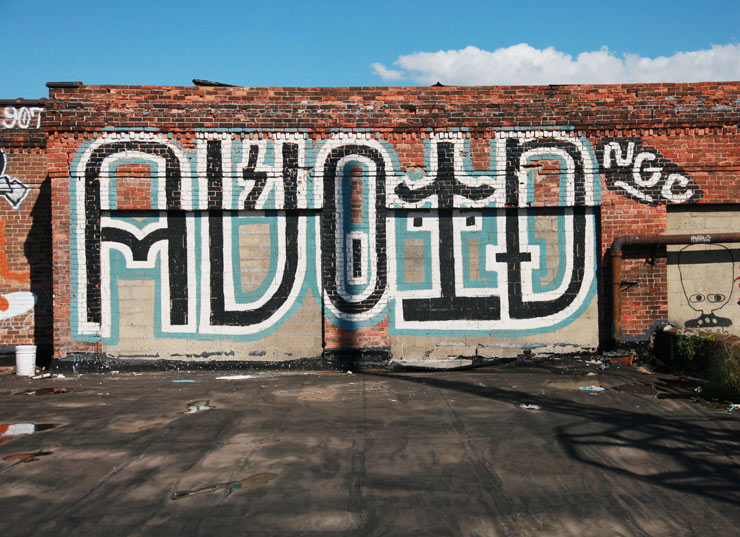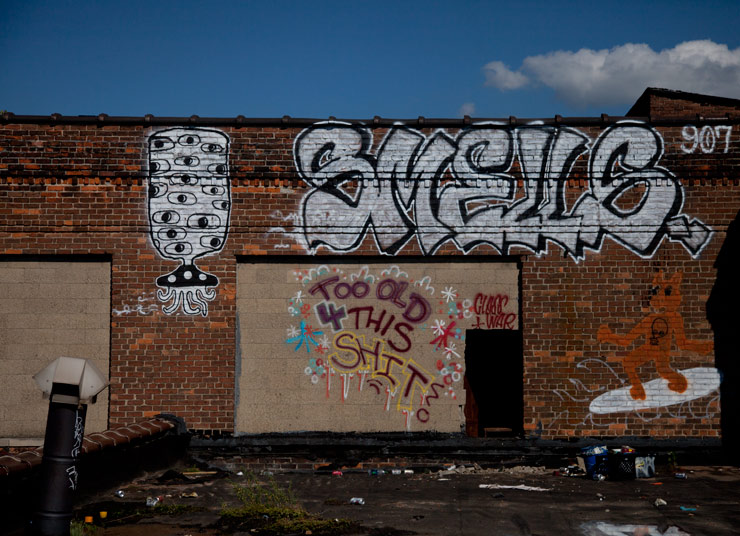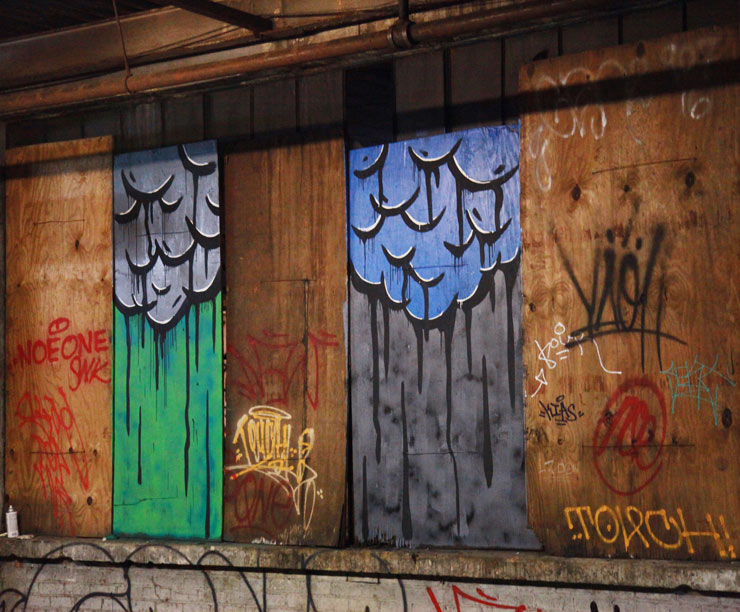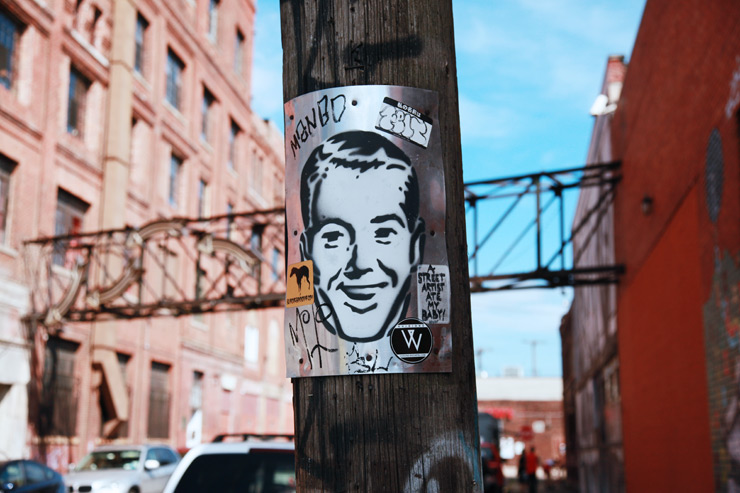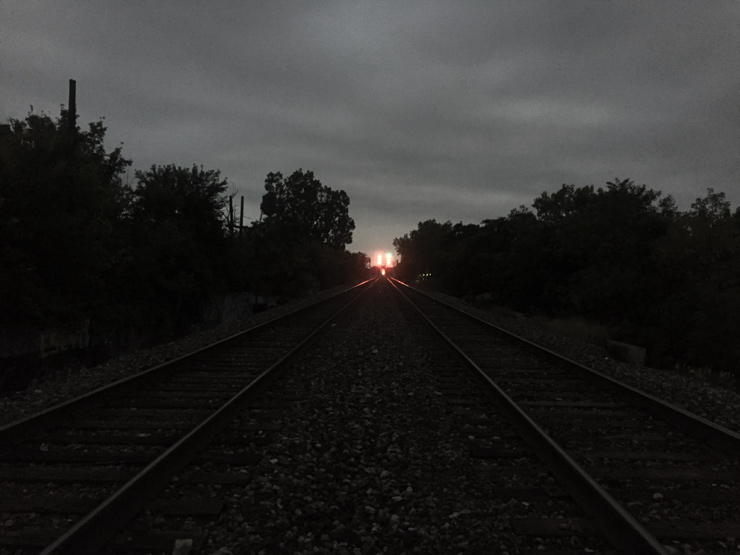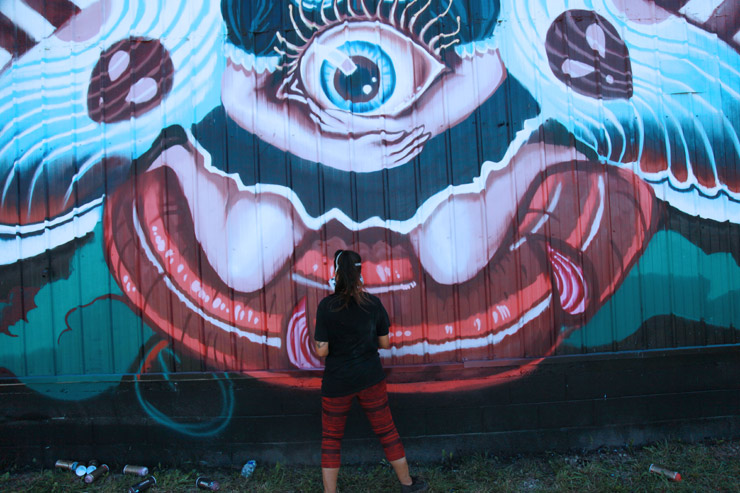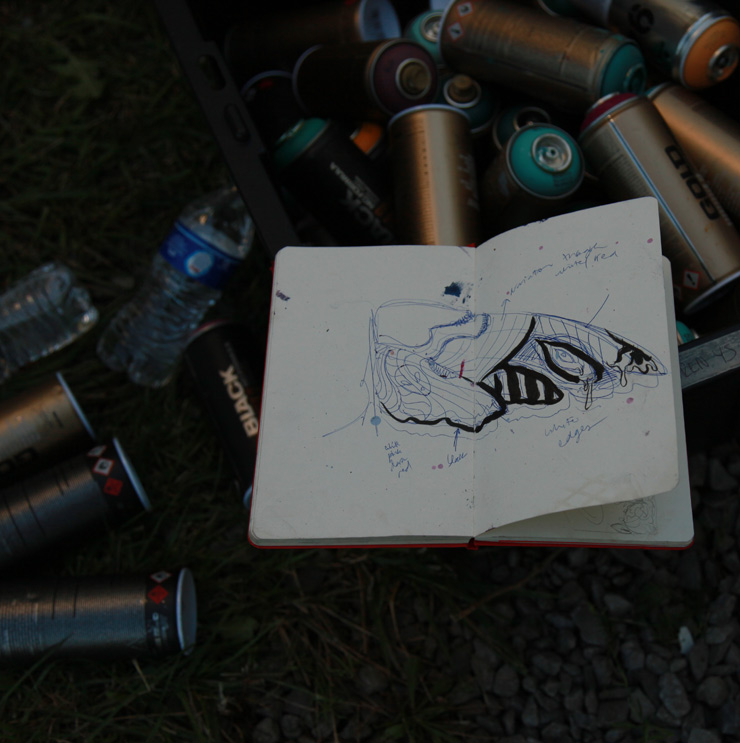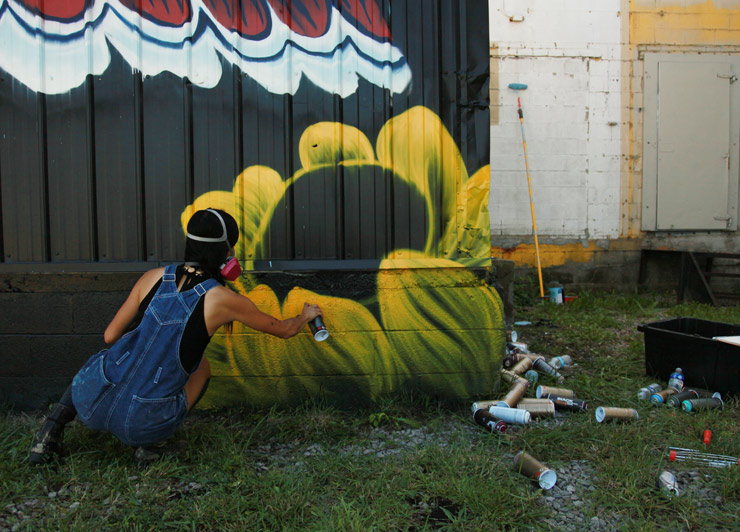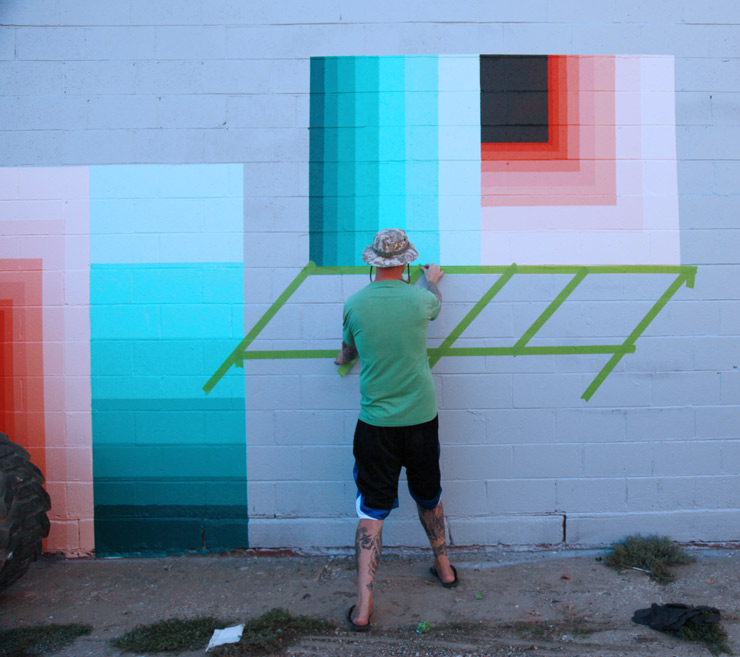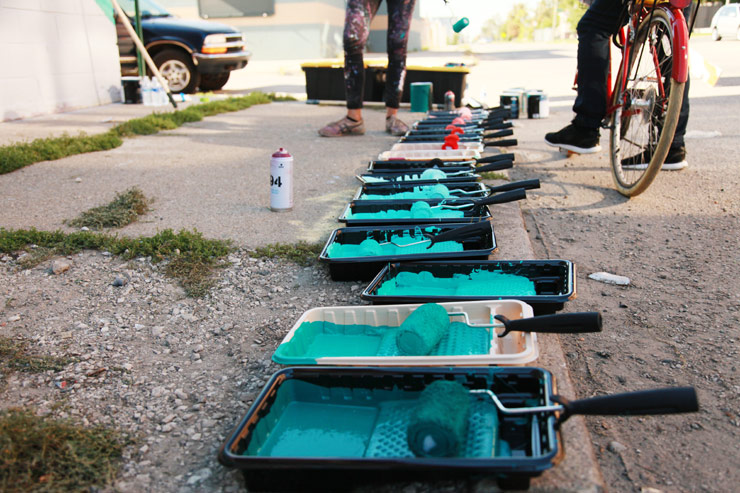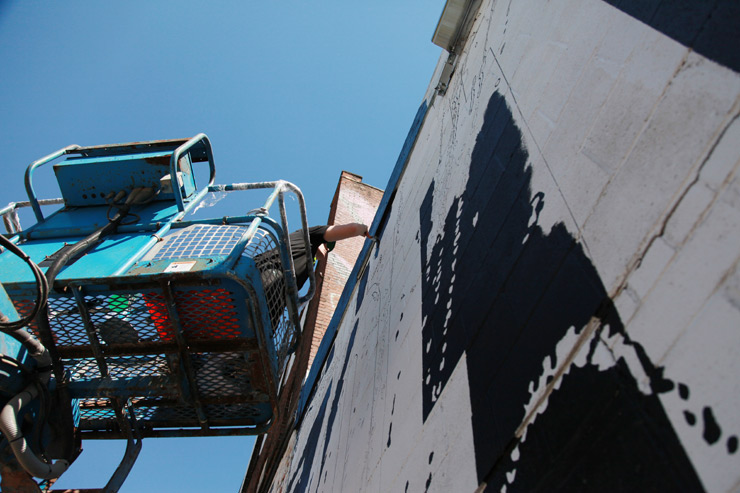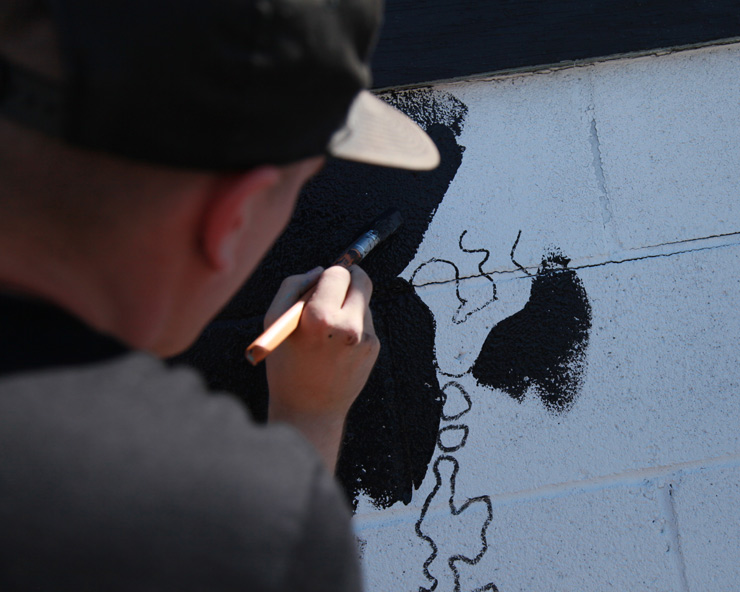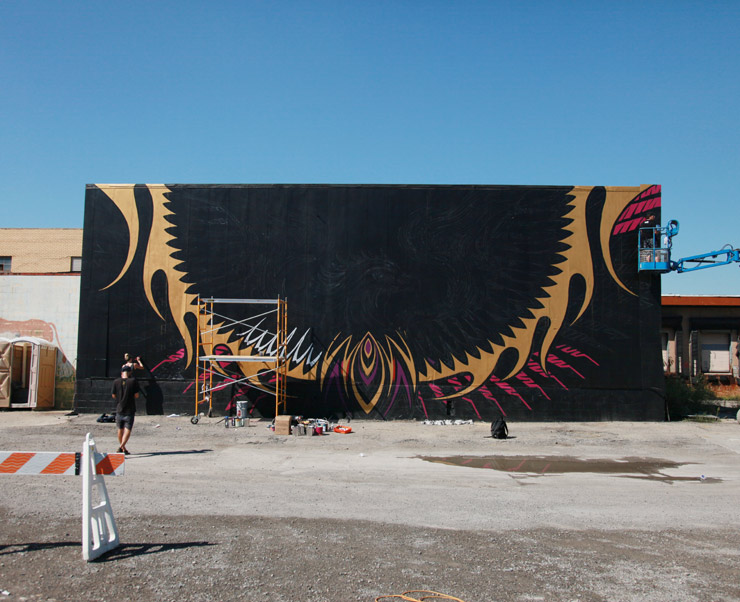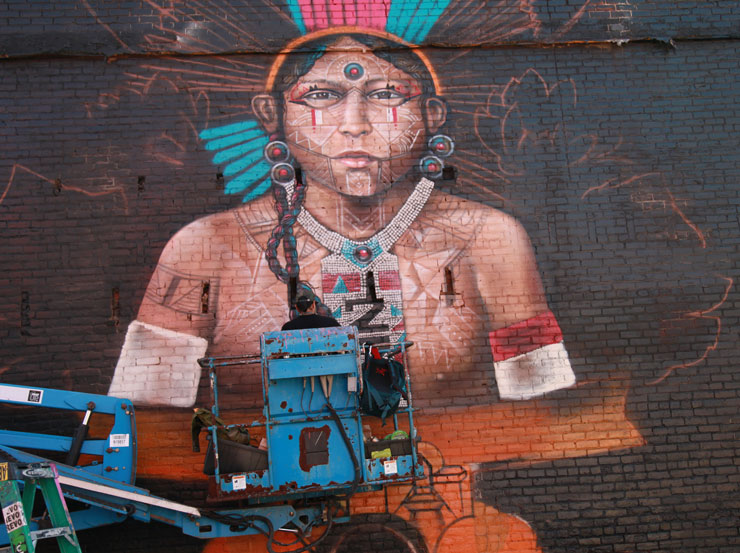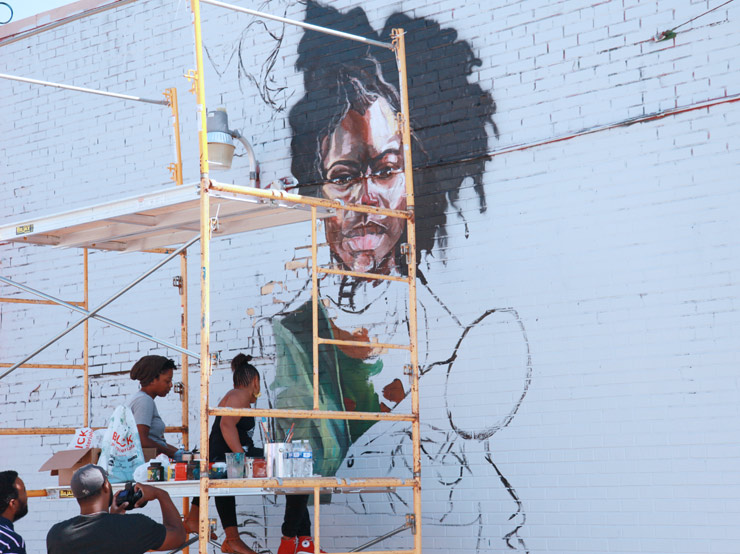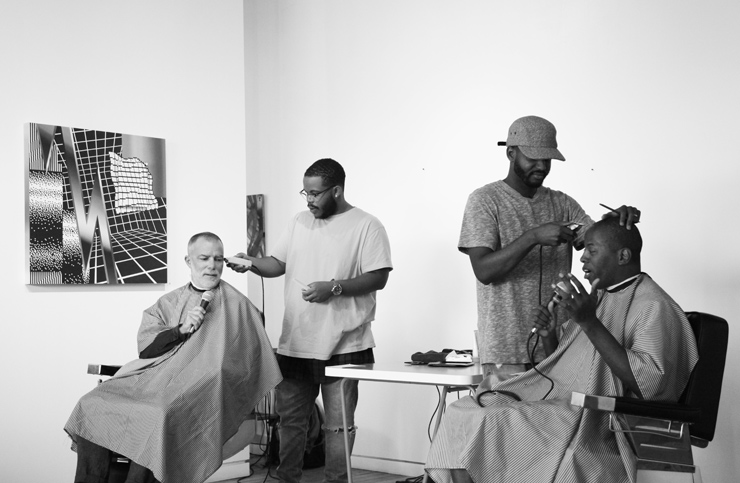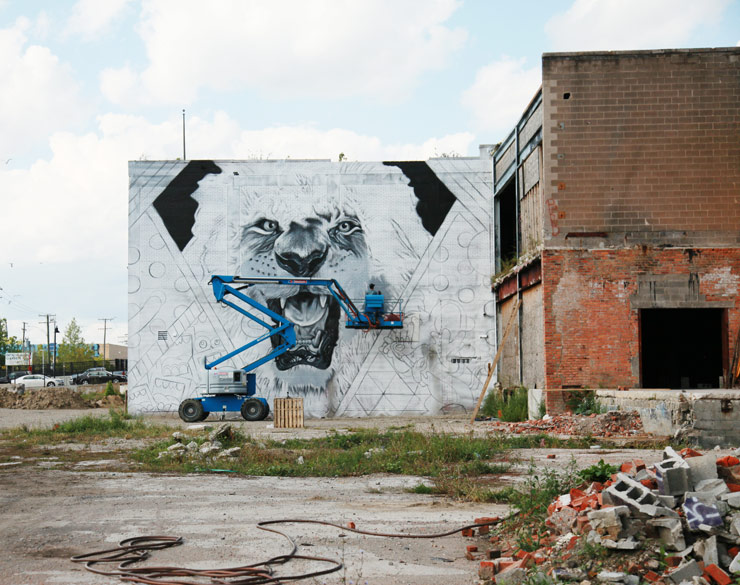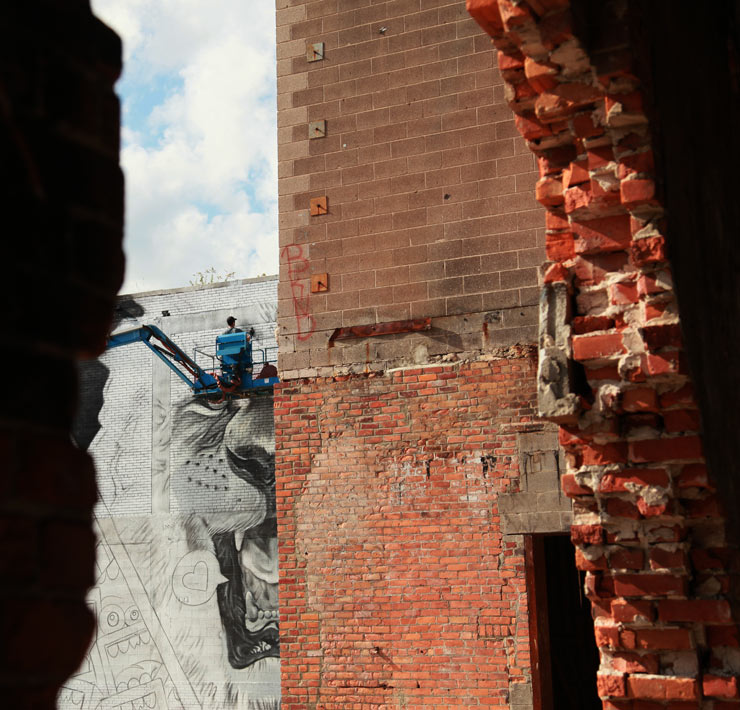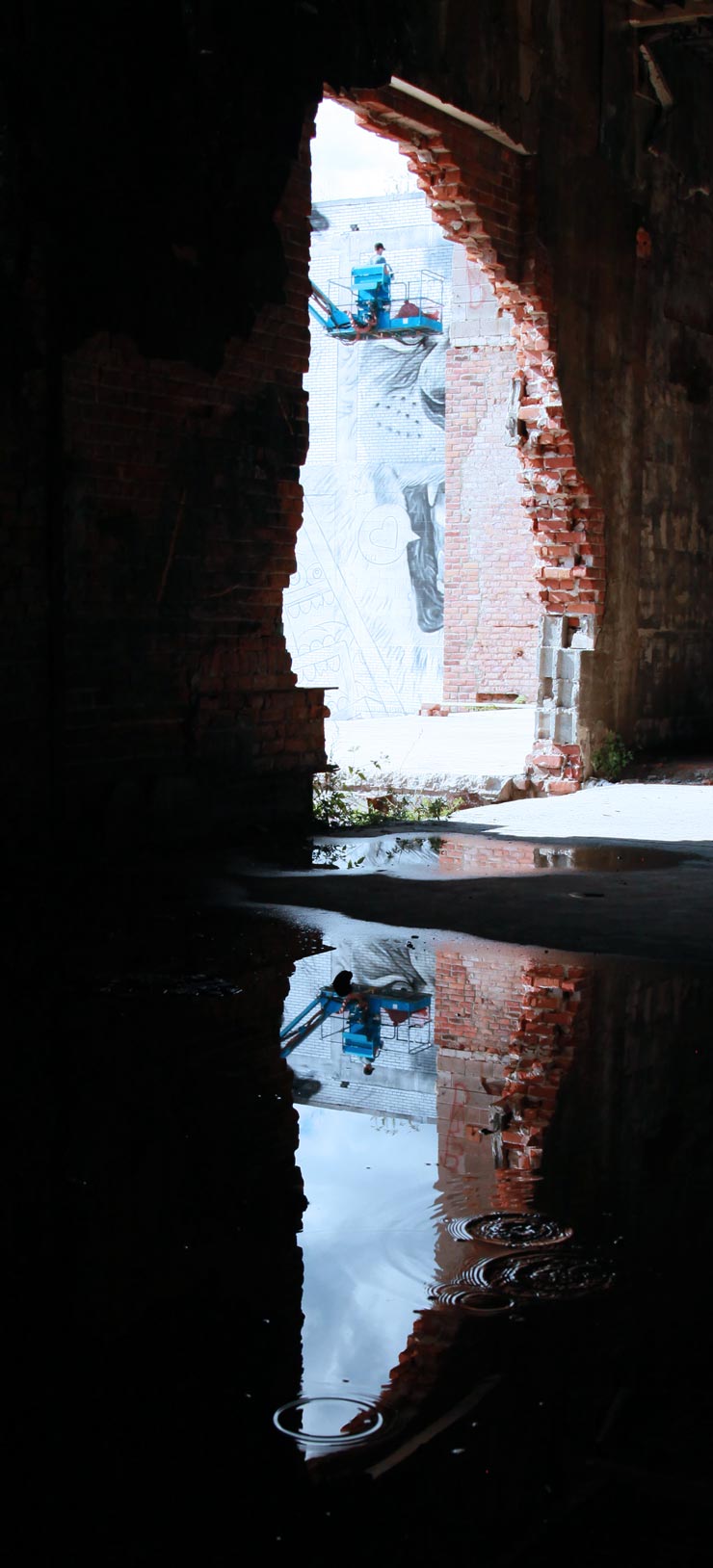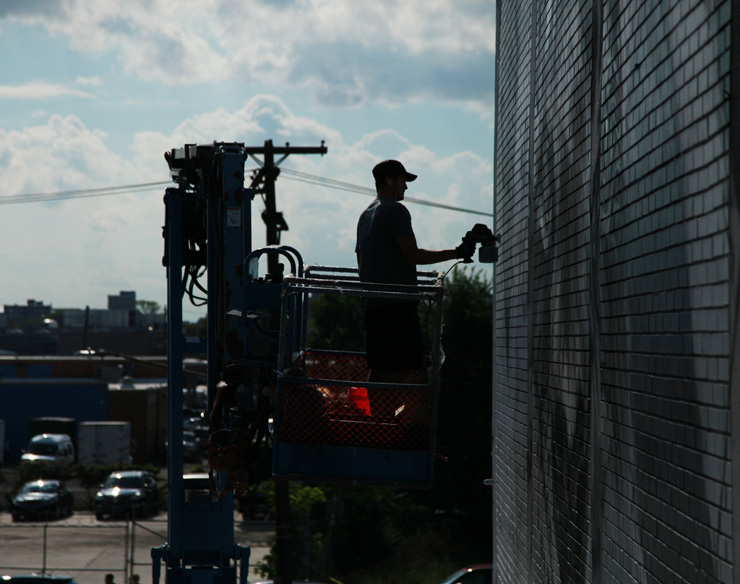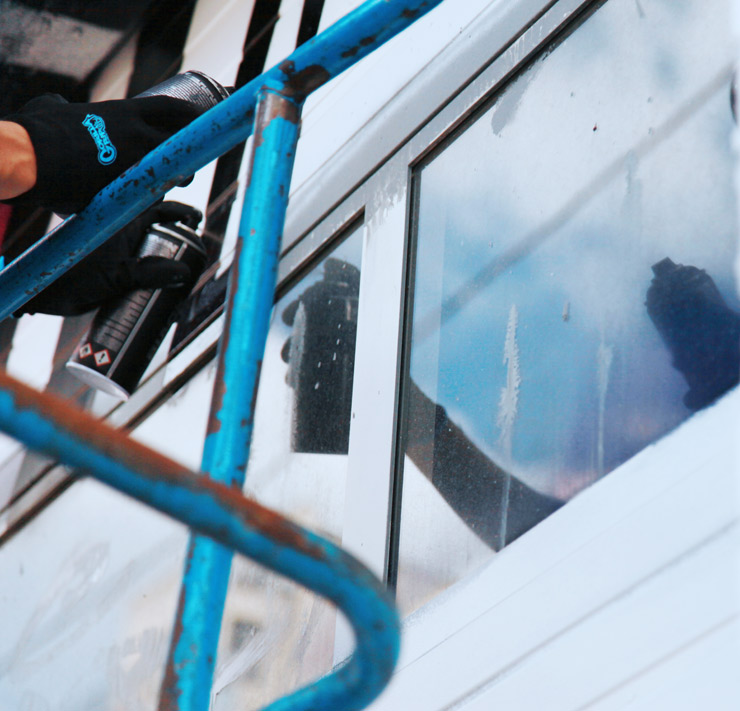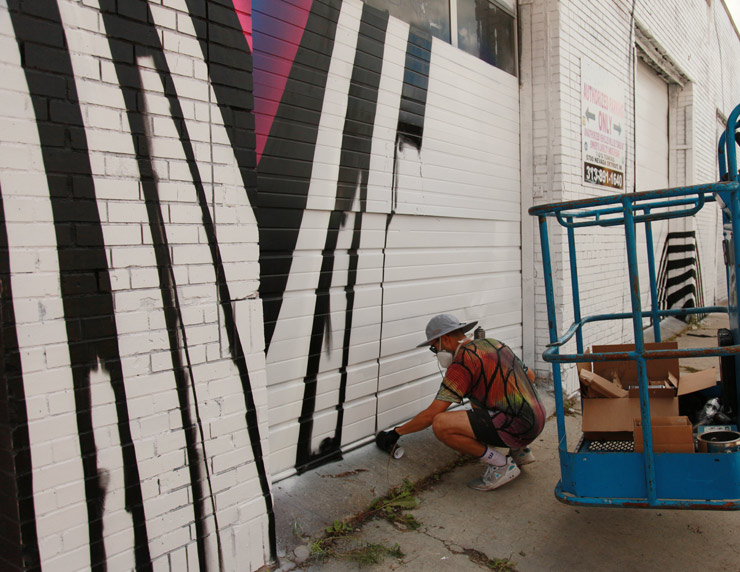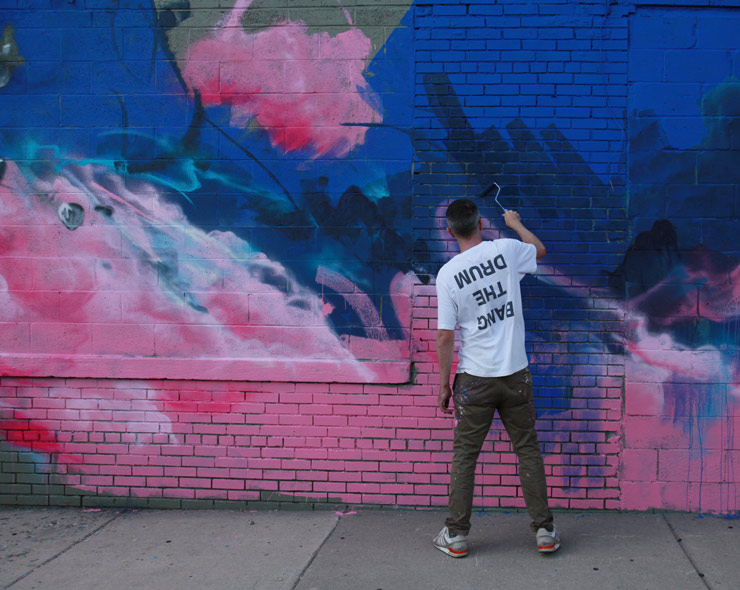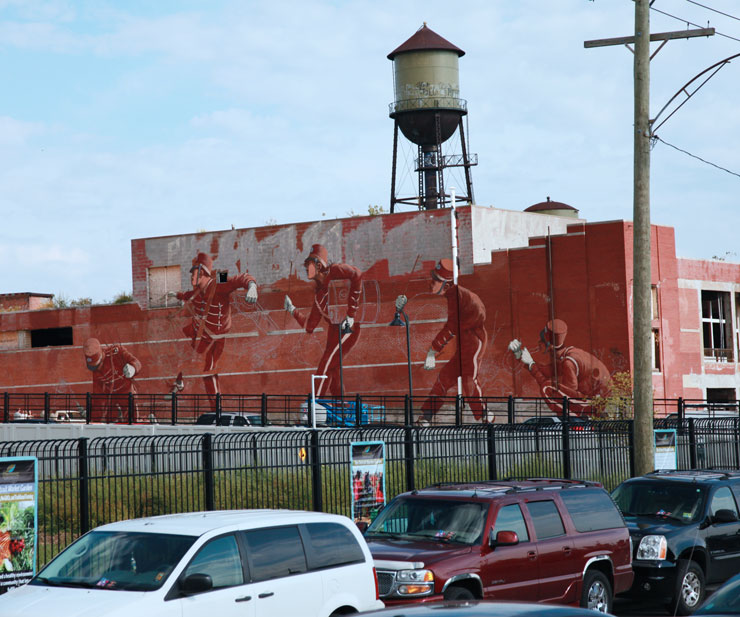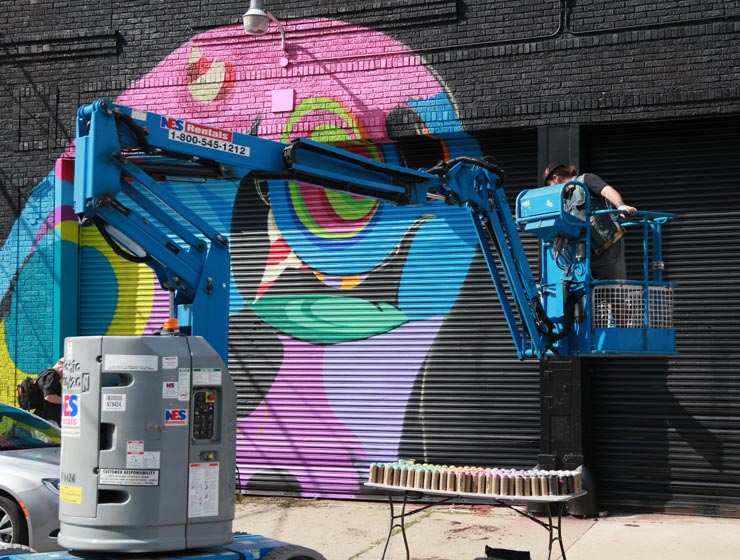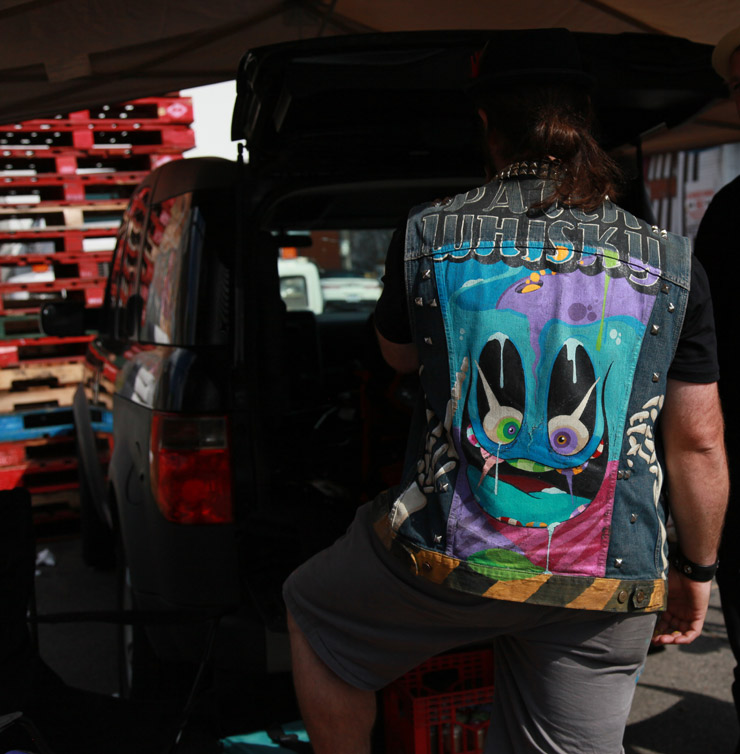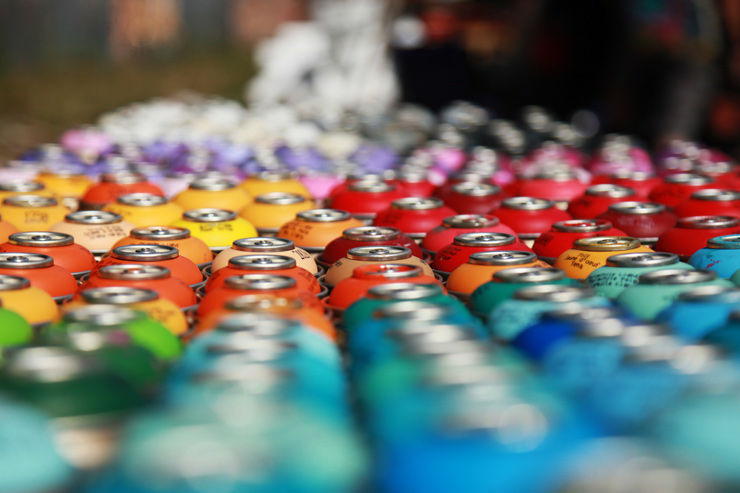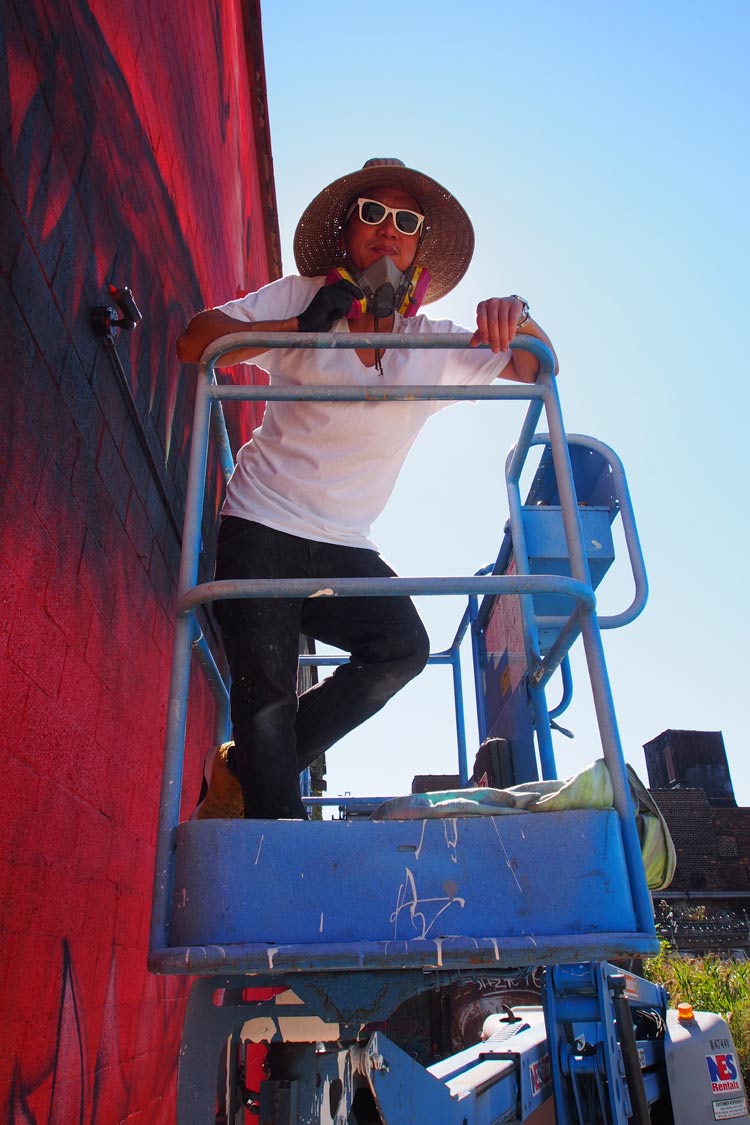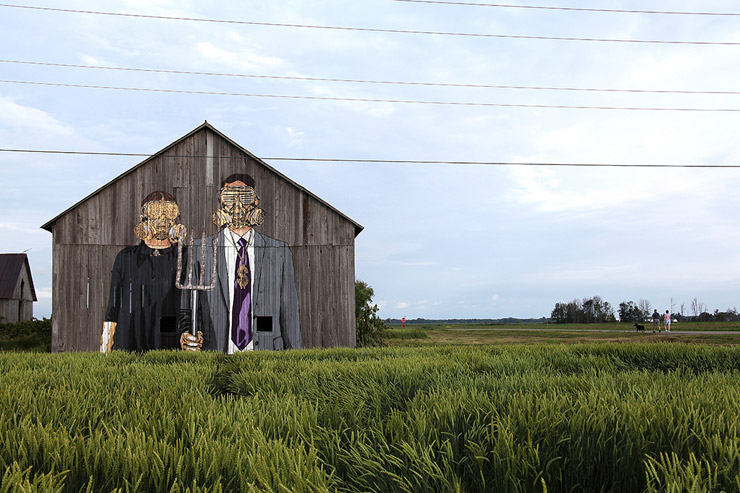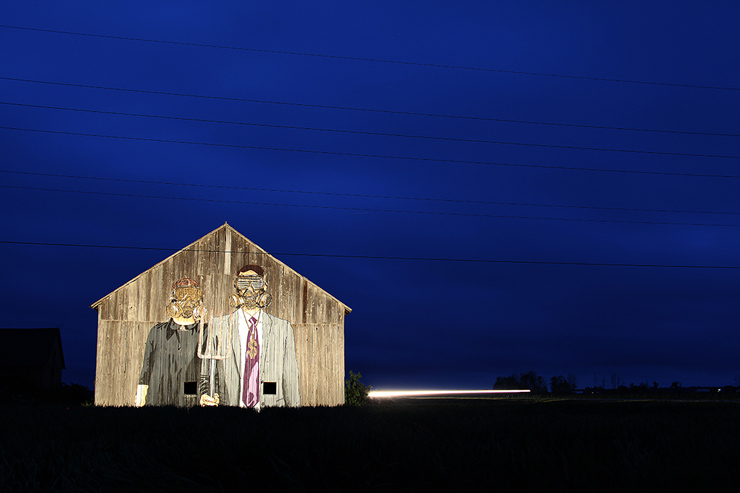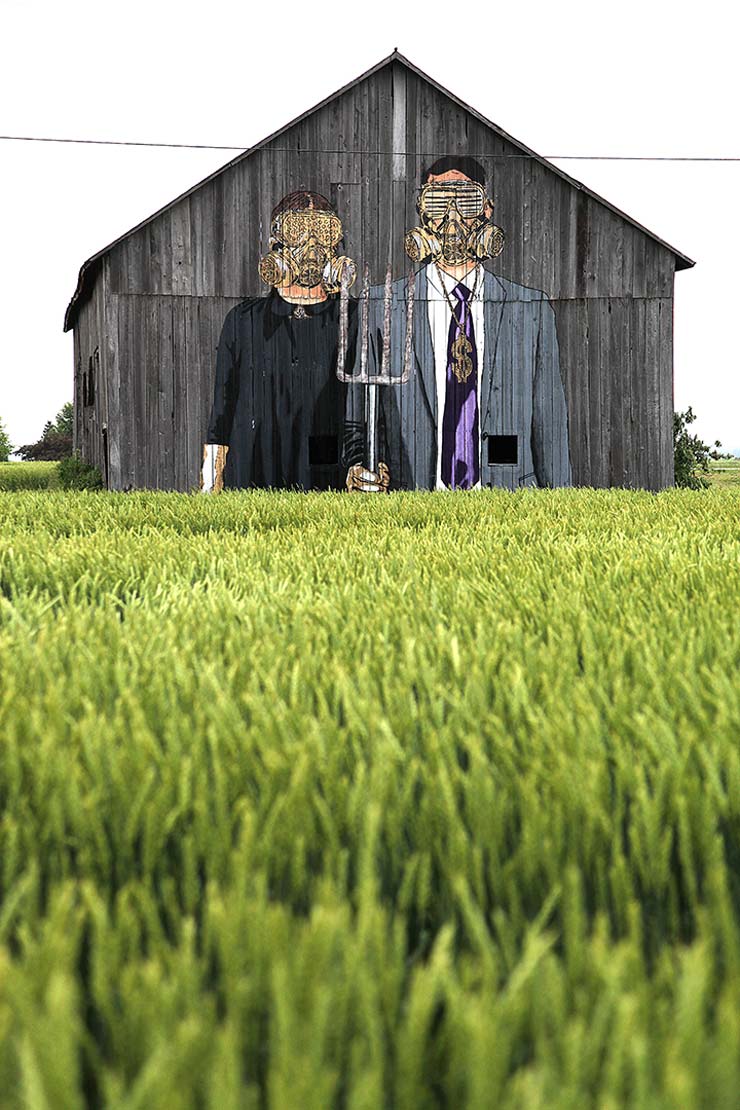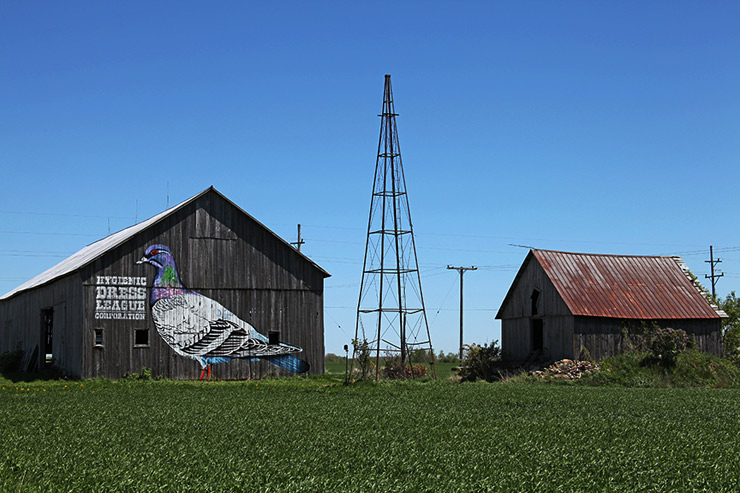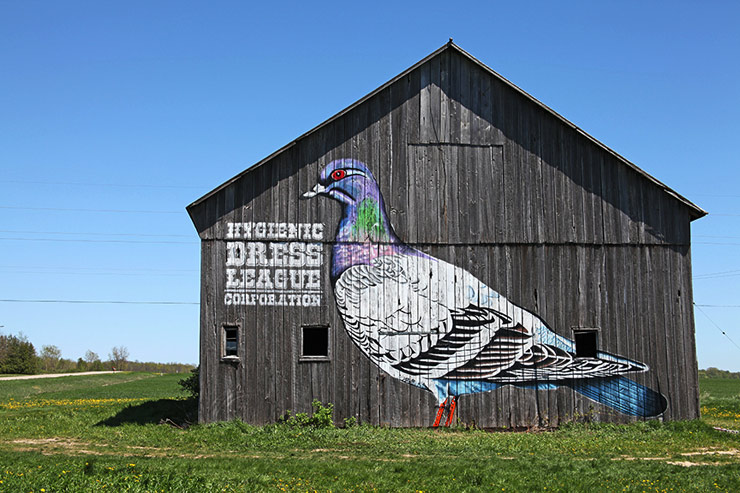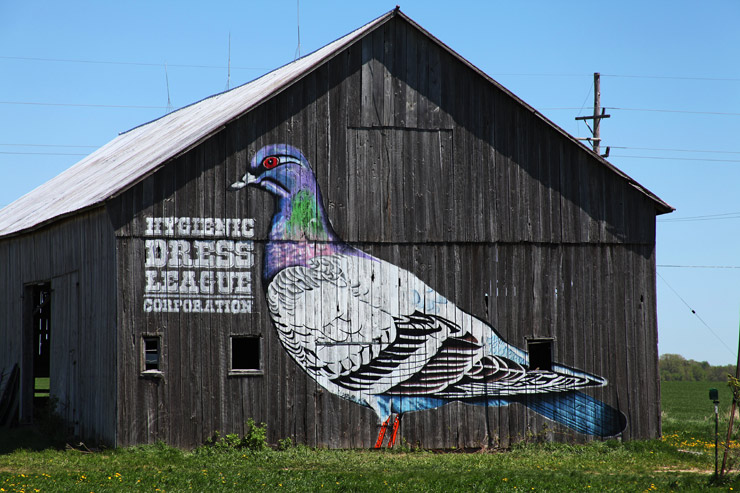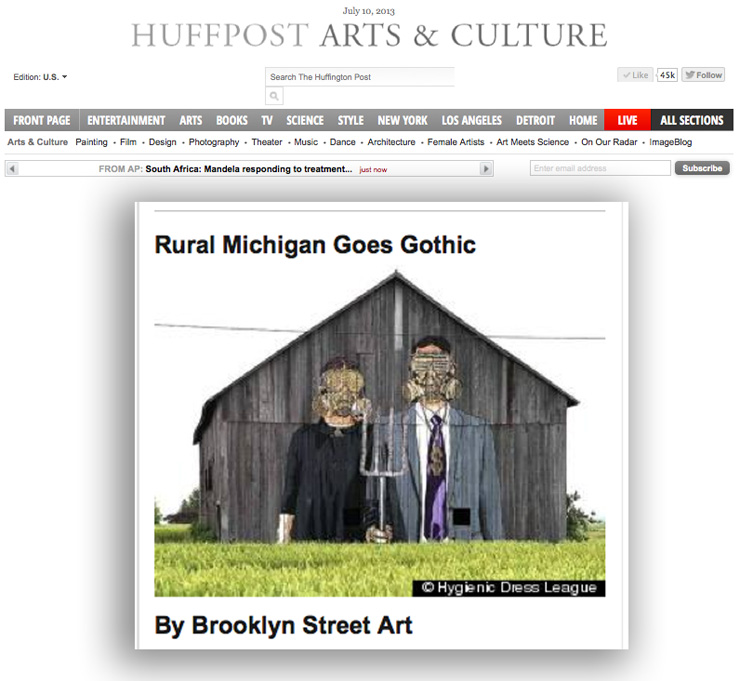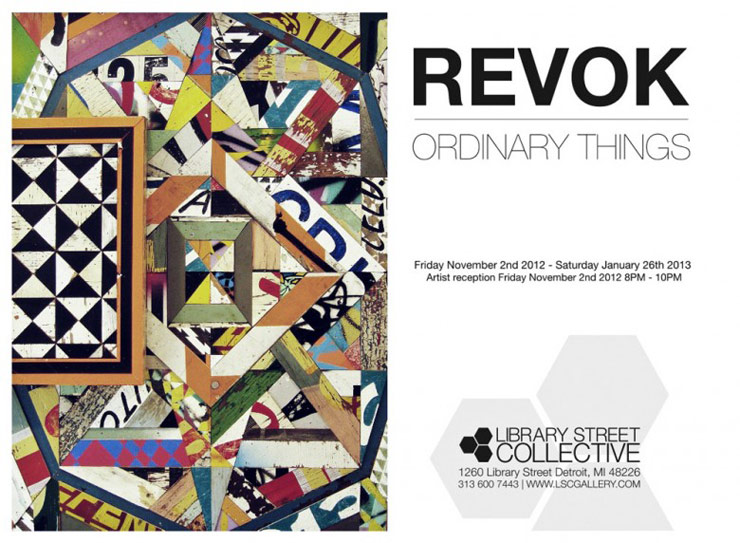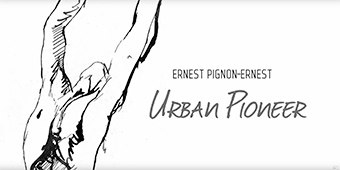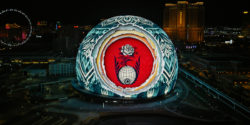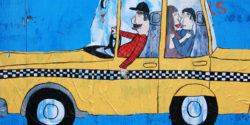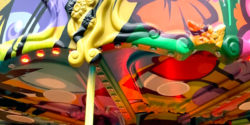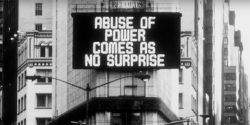Artist Beau Stanton has a studio practice and a street practice, but most wouldn’t think of him as a Street Artist, per se. Classically trained in illustration and oil painting, his precise and hand-rendered style borrows from traditional, historical, nautical, and religious influences. Related from their original context, his appropriated icons, figures, and sense of ornamentation are placed in relation to one another in a way that creates new timeless stories that are rooted in the past but are also in this moment.
Beau Stanton. Detroit, USA. September 2016. (photo © Jaime Rojo)
On leave from Brooklyn for a brief residency in Detroit, lately Stanton has been spending his time urban exploring 20th century American civilization by wandering through abandoned car manufacturing plants and old churches that have left to crumble, taking inspiration from both the orderly design and mechanical interplay observed in factories and the ornamentally inspirational language used in sacred houses of worship.
Environments and implied histories like these overlap in varied practices during his short career that includes oil paintings, murals, larger scale installations, stained glass, and multimedia. Back at his residency studio he is now trying his hand at the artful laying hand cut tile, glass, ceramic, brick, found materials and mortar. Mosaic work is next and you can see him applying his study of the century-spanning craft with the same meticulous attention to detail that earmarks his work elsewhere.
Beau Stanton. Detroit, USA. September 2016. (photo © Jaime Rojo)
We were also exploring in Detroit recently and came upon a lone house painted by Stanton in a pavement gridded grassy field that once was a neighborhood. It is a common sight in modern Detroit, these remnants of a working class and middle class decimated by “free trade” and corporate greed. Entire neighborhoods now are barren and dotted with huge overgrown trees that were once in front yards, perhaps holding a swing or shading a couple of lawn chairs. Block after block one can see how livelihoods crumbled and burned to the ground – and now there is only the occasional house or church or small business still standing where once there was a community.
Painted during last years’ Murals in the Market festival, Stanton’s multi-sided mural uses vaguely familiar figures and ornamentation in eye-popping hues that suggest vibrant life is here again. The new construction of a house is made a beacon by his vision, a hopeful note that some think is a harbinger of the big D’s resurgent and budding future. Within it you may see allusions to Detroit’s Victorian architecture and mansions, ornamental gears of progress, rays of vision and inspiration. Of course, its all subjective.
Beau Stanton. Detroit, USA. September 2016. (photo © Jaime Rojo)
We asked Beau about his house and his observations on Detroit during his time in the city right now.
Brooklyn Street Art: How did you find out about this cinder-block house?
Beau Stanton: Last year for the first Murals in the Market, the festival directors Roula David and Jesse Cory approached me to paint this house having known I’d been interested in doing a house intervention piece for a long time. This was basically a dream scenario for me.
BSA: How do the designs you painted respond to the area around it?
Beau Stanton: The house is really visible from St. Aubin Street as one of the only remaining homes in a several block radius so I wanted to do something really bright and colorful that would make this weird little house appear renewed and re-occupied after being abandoned for almost a decade. The images on the vertically oriented sides are both symbolic, a rendition of a classical bearded god figure crowned by historic Detroit architecture emerging from my usual mechanical wave patterns, and on the opposite side a tree with mostly bare branches with leaves starting to sprout as if coming into Spring.
Beau Stanton. Detroit, USA. September 2016. (photo © Jaime Rojo)
BSA: You are preparing for an upcoming show this fall, right? What will you be focusing on?
Beau Stanton: I am currently a resident at the Red Bull House of Art in Detroit’s Eastern Market, the three month residency culminates with a large exhibition in the on site gallery where I will be showing alongside the other two residents Coby Kennedy and Lala Abbadon.
I’m using this residency as an opportunity to try out some new techniques and installation ideas I’ve wanted to do for a while involving a lot of resources one can only find in Detroit. The main focus of my work will be large scale mosaics that are composed of locally sourced glass, ceramic, brick, marble, and other materials that I’ve been finding mostly in abandoned factories. I want the work to have Detroit DNA while also playing with ideas of urban archaeology, alternate past/future scenarios, and ultimately creating something beautiful from the remains of Detroit’s glorious past, while celebrating the renewal and sense of optimism that is really palpable here.
Beau Stanton. Detroit, USA. September 2016. (photo © Jaime Rojo)
BSA: Often you have included mythical and/or nautical themes in your paintings. Did you have in mind the Detroit River or surrounding cityscape when conceptualizing this piece.
Beau Stanton: The main image of the head and crown incorporate about half a dozen historic homes from the nearby neighborhood of Brush Park. Although most of these beautiful Victorian buildings are no longer around, a few of them have been recently restored to their original grandeur including the iconic Ransom Gillis house, one of my early Detroit obsessions.
BSA: How would you describe Detroit and the artist scene right now?
Beau Stanton: One of the first things I noticed on my first visit here several years ago was how supportive and tight knit the art scene is in Detroit. When you come to this city, the abundance of space creates a sense that you can do or make anything, this can be intoxicating at first causing one to dream really big. Eventually you come back to Earth but the essence of that feeling remains and I think that this is why you see such great work coming out of this city right now, both on the street and in the gallery.
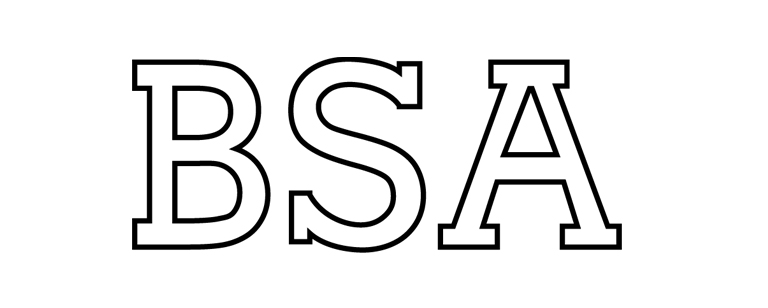 BROOKLYN STREET ART LOVES YOU MORE EVERY DAY
BROOKLYN STREET ART LOVES YOU MORE EVERY DAY